
SUMÁRIO
W FORMAÇÃO DE PALAVRAS
Antes de começar
Leia o texto a seguir, que fala brevemente sobre dois romances − um inglês e um francês − sem o uso da letra "e" em sua construção, e depois responda às questões que o seguem
You Won’t Find the Letter “E” in Either of These Two Novels
The letter “e” is so inte gral to many languages that it’s amazing to think that even a short conversation could be conducted without it For instance, in one episode of How I Met Your Mother , Lily and Robin challenge their friend Barney to try and get a girl’s phone number while wearing a trash bag and without using the letter “e ” Okay, so he succeeds, but the conversation isn’t very scintillating (and the garbage bag is not a great look, either )
“E” is the most commonly used letter in the English language Not only that, it’s the most commonly used letter in lots of languages, including French, German, Spanish, Italian, Swedish, Danish, and Dutch So there are easier letters to omit if you decide to construct a lipogram – a text that deliberately omits a particular letter – no matter what your nationality All of which makes the fact that not one but two authors managed to complete entire novels without ever using the letter “e” all the more amazing
Written in 1939, Ernest Vincent Wright’s Gadsby is a 50,000 word novel – and there’s not an “e” in sight (at least not once you get past the author’s name or the introduction, in which Wright mentions how people often told him that such a feat was impossible), but Gadsby sticks to its own rules admirably If there are abbreviations used, they are only ones that still would not contain the letter “e” if written out in full In order to make sure he didn’t accidentally cheat, Wright reportedly tied down the letter “e” on his typewriter
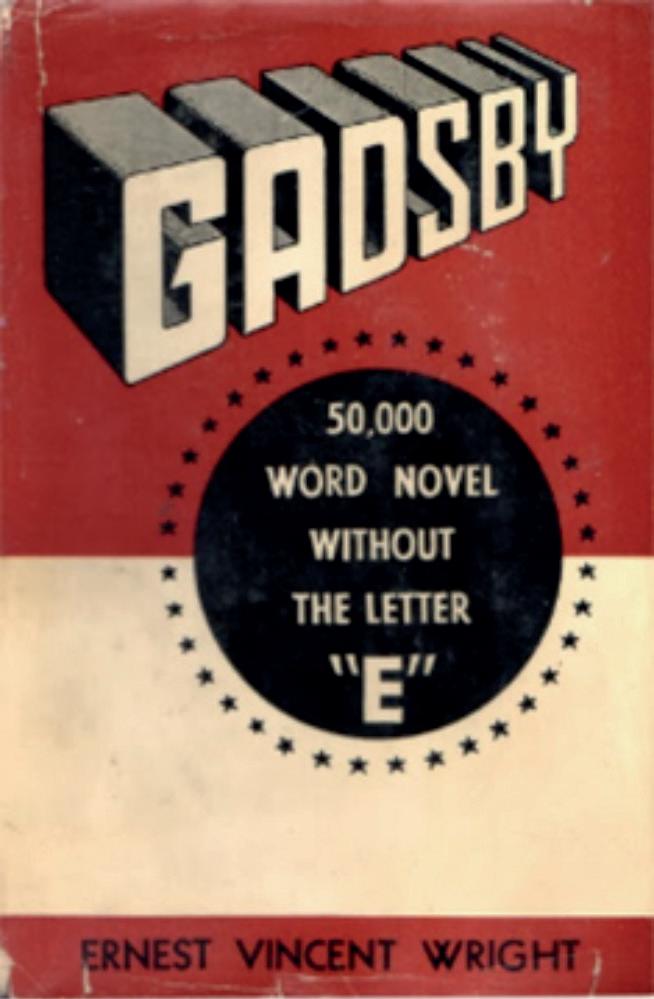
Inspired by Wright, Georges Perec decided to write his own novel without the letter “e” – in his first language, French Published in 1969, it was called La Disparition and was later, incredibly, translated into English in 1994 by Gilbert Adair, who renamed it A Void (as the direct translation would have been “The Disappearance”, which, you might have noticed, contains three examples of the letter in question)
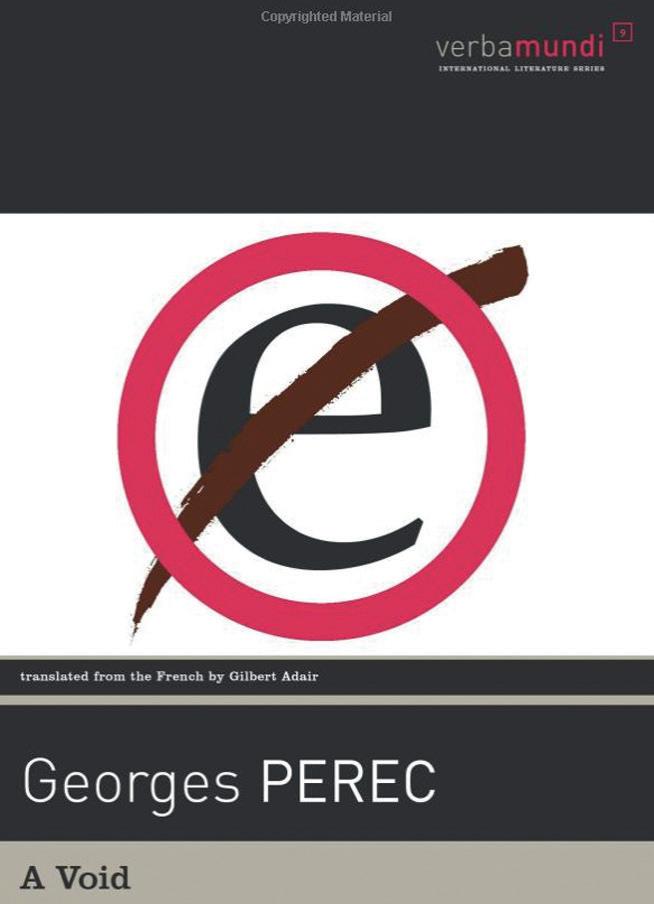
La Disparation has been translated into many languages in the same lipogrammatic form, including German, Italian, Dutch, Swedish, Spanish, Turkish, Romanian, and even Japanese You have to wonder who had the harder job here: the author of the original novel, or the writers who managed to stick to the rules when they translated it
(Aliya Whiteleys In: Mental Floss. Disponível em: <http://mentalfloss.com/ article/84280/you-wont-find-letter-e-either-these-two-novels>. Acesso em: 23 jan 2018. Modificado.)
Gabarito 01
Today, by radio, and also on giant advertisements, a rabbi, an admiral notorious for his links to Masonry, a trio of cardinals, a trio, too, of insignificant politicians (bought and paid for by a rich and corrupt Anglo-Canadian banking corporation), inform us all of how our country now risks dying of famine� A rumour, that’s my initial thought as I switch off my radio, a rumour or possibly a deception� Propaganda, I murmur tensely—as though, just by saying so, I might alleviate my doubts—typical politicians’ propaganda� But public opinion gradually absorbs it as a fact�
Gabarito 02
Algumas estratégias podem ter sido o uso de sinônimos; o uso da narração em primeira pessoa do singular, que tem verbos conjugados sem as terminações da terceira pessoa do singular, como watches; o controle da história e de seus personagens, que podem ter nomes e nacionalidades sem a letra proibida etc�
Gabarito 04
Resposta pessoal� Sugere-se, nesse exercício, que o professor corrija os textos dos alunos de modo a ajudá-los a engrandecer o vocabulário de inglês, uma vez que será necessário conhecer vários sinônimos para escrevê-lo. Para facilitar, o professor pode separar a turma em duplas ou trios para realizar a atividade, e depois determinar um número máximo de linhas e um tema, por exemplo, a ida a um funeral, pois, assim, os alunos não poderão usar palavras como funeral, death ou dead
DISCUSSÃO
01. Read an excerpt from A Void, written by Georges Perec, and replace the words in bold for synonyms with the letter E: “Today, by radio, and also on giant hoardings, a rabbi, an admiral notorious for his links to Masonry, a trio of cardinals, a trio, too, of insignificant politicians (bought and paid for by a rich and corrupt Anglo-Canadian banking corporation), inform us all of how our country now risks dying of starvation A rumour, that’s my initial thought as I switch off my radio, a rumour or possibly a hoax Propaganda, I murmur anxiously as though, just by saying so, I might allay my doubts—typical politicians’ propaganda. But public opinion gradually absorbs it as a fact.”
02. Levando em consideração o excerto de Perec acima e o seguinte, de Wright, infira estratégias utilizadas por esses autores para escrever os livros mencionados no texto: “Upon this basis I am going to show you how a bunch of bright young folks did find a champion; a man with boys and girls of his own; a man of so dominating and happy individuality that Youth is drawn to him as is a fly to a sugar bowl. It is a story about a small town.”
03. In your opinion, which is harder: writing without the letter E or translating it? Write a small paragraph giving reasons� Resposta pessoal�
04. Desafie-se: escreva um pequeno conto em inglês que não contenha a letra “e”. Lembre-se de que um conto é uma narrativa breve e concisa, contendo um só conflito, uma única ação, com espaço geralmente limitado a um ambiente, uma unidade de tempo e um número restrito de personagens�
Introdução
A formação de palavras em inglês faz parte do que chamamos de morfologia das palavras, que é o estudo da constituição dos vocábulos e dos processos pelos quais eles são construídos a partir de suas partes componentes� Esse estudo serve para o reconhecimento das classes gramaticais – noun, numeral, article, adjective, verb, adverb, preposition, conjunction e interjection em inglês – como também para saber os significados das palavras com raízes – parte constante das palavras, que carregam o significado principal –, prefixos – alterados do significado principal inicial – e sufixos – indicadores das classes citadas�
Vamos nos ater aos substantivos, verbos, adjetivos e advérbios nesta aula. Repare que, em inglês, é possível formar diferentes classes gramaticais com a mesma raiz:
unreal, unrealistic realize reality, realism real, realistic really adjetivos com prefixo de negação verbo substantivos adjetivos advérbio
A parte em negrito é a raiz da palavra. No te que ela se repete em todas as classes gramaticais e o que muda é exatamente o que a caracteriza (não vamos entrar aqui nas especificidades, vogais temáticas, desinências e afins, do português). Independente do sufixo, é possível acrescentar alguns prefixos a palavras já existentes para mudar seu significado original, como no caso de unreal, que nega a realidade que a palavra real afirma�
Sufixos
Para substantivos
Já estudamos alguns sufixos indicadores nos módulos anteriores, mas deixaremos as tabelas com alguns exemplos para que você possa conferir, se precisar. Lembre-se de que, melhor do que memorizar tabelas, é ler textos e ouvir áudios em inglês, prestando-se atenção às palavras usadas em cada contexto.
Sufixo Significado Exemplos
-age indicador de grupo; quantidade; local baggage, village, anchorage
-al processo ou estado de algo arrival, burial, deferral
-ance/-ence ação ou estado de algo reliance, defence, insistence
-dom condição ou estado; área reinada por; grupo de algo boredom, freedom, kingdom
-ee pessoa afetada ou descrita por algo employee, payee, refugee
-er/-or indicador de profissão driver, writer, director
-hood estado ou qualidade de algo brotherhood, childhood, neighbourhood
-ism grupo de ideias ou sistema de crenças capitalism, Marxism, socialism
-ist pessoa que acredita em algo; indicador de profissão violinist, atheist, socialist
-ity/-ty qualidade ou estado de algo brutality, equality, cruelty
-ment ação ou resultado de algo amazement, disappointment, parliament
-ness qualidade, estado ou característica de algo happiness, kindness, usefulness
-ry grupo ou classe de algo; estado ou característica de algo; a arte de fazer algo
-ship estado ou característica de algo; habilidade de algo; grupo de algo
-sion/-tion/-xion ação ou estado de algo
entry, ministry, robbery, bakery
friendship, membership, workmanship
expression, population, complexion
Disponível em: <http://dictionary.cambridge.org/us/grammar/british-grammar/word-formation/suffixes>. Acesso em: 16 nov. 2016. Adaptado.
In 1959, at age 17, Hawking took an entrance exam for Oxford He received a scholarship and commenced schooling there, in his third year joining the boating club as a coxswain in order to make more friends He didn’t work particularly hard, averaging an hour of studying per day, but that was the prevailing attitude then at Oxford One should rely on brilliance Despite that, he advanced successfully to graduate school
(Extrato retirado de: David J Eicher The life and times of Stephen Hawking. In: discovermagazine com)
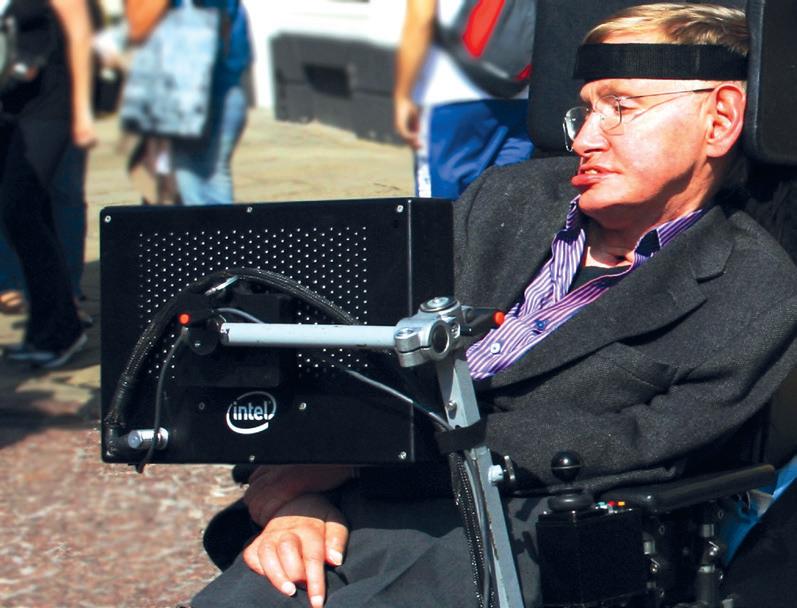
Para adjetivos
Da mesma forma que os sufixos formadores de substantivos, mostrados anteriormente, os sufixos adjetivos são igualmente importantes norteadores de leitura.
Sufixo Significado Exemplos
-able/-ible possível ou passível de algo



drinkable, portable, flexible
-al tem ligação a algo; processo ou estado de algo brutal, formal, postal
-ed que descreve como alguém se sente ou o estado de algo amused, confused, frightened
-en ser feito de algo
-ese indicador de procedência
-ful cheio de algo
-i indicador de procedência
broken, golden, wooden
Chinese, Japanese, Vietnamese

forgetful, helpful, useful
Iraqi, Pakistani, Yemeni
-ic tem ligação a algo; que pratica a ação mencionada classic, Islamic, poetic
-ing que descreve algo que causa emoção
-ish indicador de procedência (língua); que age como algo; que se aproxima a algo
-ive que tende a algo; que tem a natureza de algo
-ian indicador de procedência
tiring, boring, exciting
British, childish, Spanish
active, passive, productive
Canadian, Malaysian, Peruvian
-less indicador de falta homeless, hopeless, useless
-ly indicador de frequência daily, monthly, yearly

-ous que tem a natureza ou a característica de algo
cautious, famous, nervous
-y estar cheio de algo; que tende a algo dusty, cloudy, rainy, windy
Disponível em: < http://dictionary.cambridge.org/us/grammar/british-grammar/word-formation/suffixes>. Acesso em: 16 nov. 2016. Adaptado.
One out of 5 people in Canada’s population is foreign-born
According to the first data from the 2011 NHS, Canada had a total of about 6,775,800 foreign-born individuals who arrived as immigrants They represented 20 6% of the total population, compared with 19 8% in the 2006 Census
Many of Canada’s foreign-born have lived in the country for many years, while others were relative newcomers
Around 1,162,900 foreign-born people immigrated in Canada between 2006 and 2011 These recent immigrants made up 17 2% of the total foreign-born population and 3 5% of the total population in Canada. Together with immigrants who came during the first five years of the millennium, nearly 2,155,000 immigrants made Canada home during the last ten years (Dados retirados de: <www12.statcan.gc.ca/nhs-enm/2011/as-sa.cfm>. Acesso em: 19 mar. 2018.)
ATENÇÃO!
Os sufixos de adjetivos -ed e -ing são escritos da mesma forma que os indicadores de verbos no particípio e no presente contínuo, respectivamente, mas representam classes gramaticais diferentes. Além disso, o sufixo - ing pode indicar um substantivo
Veja os exemplos a lado:
Para verbos
He was red from all that moving around adje vo
He had finally moved to his new house and now he was bored
He was moving to his new house and the whole process was ring
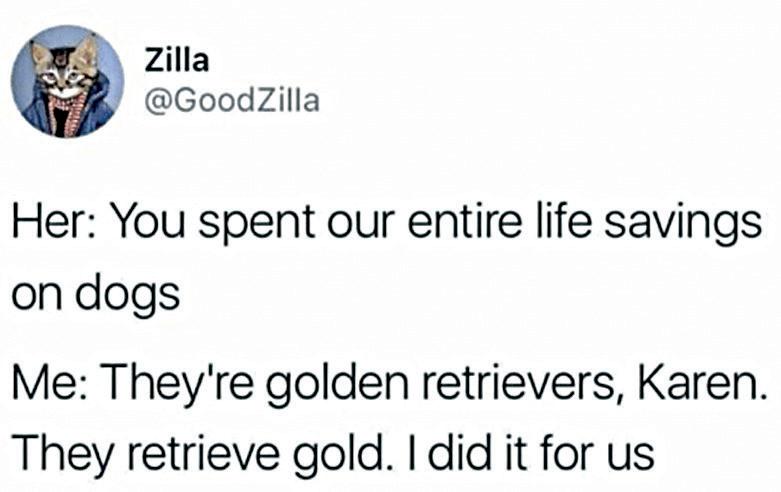
A quantidade de terminações formadoras de verbos é significativamente menor do que de substantivos e adjetivos, contudo, não menos importante Os verbos exemplificados, na tabela a seguir, estão no infinitivo, a não ser quando explicitamente apresentados em outro tempo
Terminação Significado Exemplos
-ate dar qualidade a algo to complicate, to dominate, to irritate
-em fazer ou tornar-se algo to harden, to soften, to shorten
-ed partícipio cooked, moved, cried
-ify fazer ou tornar-se algo to beautify, to clarify, to identify
-ing presente contínuo swimming, speaking, trying
-ise/-ize fazer ou tornar-se algo; agir como algo; colocar em algum lugar
to economize, to realize, to industrialize
-ive fazer algo to retrieve, to believe, to conceive
Disponível em: < http://dictionary.cambridge.org/us/grammar/>.Acesso em: 16 nov. 2016. Adaptado.
Observação: A variação do sufixo -ise ou -ize depende do fato de o inglês ser britânico ou americano, respectivamente
Para advérbios
Os sufixos formadores de advérbios também se apresentam em menor quantidade, e o mais utilizado na língua inglesa é o -ly, que pode ser acoplado a quase todos os adjetivos. É importante lembrar que, na língua inglesa, existem também as locuções adverbiais, que são formadas por frases�

Veja os seguintes sufixos:
Sufixo Significado Exemplos
-ly do jeito de algo; em intervalos de tempo calmly, easily, quickly, daily

-ward(s) na direção de algo downwards, homeward(s), upwards
-wise no jeito ou na direção de algo anti-clockwise, clockwise, edgewise
Disponível em: < http://dictionary.cambridge.org/us/grammar /british-grammar/word-formation/suffixes>.
Acesso em: 16 nov. 2016. Adaptado.
Prefixos
Os prefixos, diferentemente dos sufixos, não são indicadores de classe gramatical e são colocados antes das raízes das palavras. Eles indicam, porém, mudanças de significado nos vocábulos e o fato de conhecer seus significados pode ajudá-lo a entender o sentido de palavras desconhecidas em textos
Prefixo Significado Exemplos
anti- o oposto anti-government, anti-racist, anti-war
auto- relacionado a si próprio autobiography, automobile de- reverso ou mudança de-classify, decontaminate, demotivate dis- reverso ou remoção disagree, displeasure, disqualify down- reduzir ou menor downgrade, downhearted en-, em- colocar em, causar ou prover endanger, embed
extra- além extraordinary, extraterrestrial hyper- extremo hyperactive, hypertension
il-, im-, in-, ir- negação ou dentro de algo illegal, impossible, insecure, irregular, infiltrate
inter- entre interactive, international
mega- muito grande, importante megabyte, mega-deal, megaton
mid- meio (a) midday, midnight, mid-October
mis- de modo incorreto ou ruim misaligned, mislead, misspelt non- negação non-payment, non-smoking
over- demais overcook, overcharge, overrate
out- ir além outdo, out-perform, outrun post- depois post-election, post-war
pre- antes prehistoric, pre-war
pro- a favor pro-communist, pro-democracy
re- novamente reconsider, redo, rewrite semi- metade semicircle, semi-retired
sub- embaixo, abaixo submarine, sub-Saharan super- em cima, acima super-hero, supermodel
tele- a certa distância television, telepathic trans- através de transatlantic, transfer ultra- extremamente ultra-compact, ultrasound
un- remoção, reverso, negação undo, unpack, unhappy
under- menos que undercook, underestimate up- fazer ou levantar upgrade, uphill

Palavras compostas
Existem três maneiras de se formar palavras compostas em inglês:
x A forma fechada, em que as palavras são escritas juntas: butterfly, redhead, makeup.
EXERCÍCIOS DE FIXAÇÃO
01. Complete the word in each sentence with a suitable suffix.
a) Bribery; b) Childlike; c) Fashionable; d) Senseless; e) Apprenticeship
a) The customs official was accused of bribe________________ and corruption�
b) This painting has a certain charming child______ quality.
c) Long leather boots were extremely fashion______ at one time.
d) A shell fell on Jim’s head and knocked him sense______.
e) Helen served her apprentice______ as a reporter on a local paper.
02. Complete the word in each sentence with a suitable suffix.
a) The Prime Minister handed in his resign______ yesterday.
b) The film didn’t live up to my expect______ at all.
c) Every employ______ will be given an electric badge for entrance and exit purposes�
d) Paul doesn’t just like to be clean, he is obsessed with clean
e) We have no plans to move house for the foresee______ future.
03. Complete the blanks with the correct form of the word in brackets�
a) Evasion; b) Satisfaction; c) Management; d) Crying; e) Written
a) Tax _________________ is one of the biggest challenges of the new Ministry of Economy� (EVADE)
b) Many people are interested in job __________________ more than in earning a large amount of money� (SATISFY)
c) My __________________ course is being paid for by my employer. (MANAGE)
d) It’s a __________________ shame that all these people didn’t have a better chance in life� (CRY)
e) You can basically behave how you want but there is an __________ law that says you must not run naked. (WRITE)
04. Rewrite each sentence so that it contains a compound word formed from the two words in bold� Some changes can be made to the words, which may or may not be hyphenated�
a) A girl with fair hair answered the door�
A fair-haired girl answered the door�
b) Jack loses his temper after just a short time�
Jack is short-tempered�
c) We have certainly had some trouble from our neighbours�
Our neighbours are certainly troublesome�
d) The people upstairs have a child who is five years old
The people upstairs have a five-year-old child.
e) The sight of the waterfall took my breath away�
The sight of the waterfall was breathtaking�
05. O texto a seguir é a introdução da publicação “Norse Mythology by Neil Gaiman review – a rich retelling”, do Guardian� Dele, foram retirados alguns prefixos e sufixos. Complete as palavras com os prefixos e sufixos adequados, respeitando a gramática da língua padrão inglesa e a semântica do texto.
It’s virtual____ imposs____ to read more than 10 words by Neil Gaiman and not wish he would tell you the rest of the story� He is a thesaurus of myth, both origin____ and tradition____, as comfort____ apprais_____ the science fict____ of Douglas Adams or ____authoring fantasy with Terry Pratchett as he is ___imagining the story
x A forma hifenizada: year-old, mass-murdered, mother-in-law;
x A forma aberta: full moon, high school, half sister. Esses métodos são mais difíceis de serem memorizados, porém saber que eles são possíveis ajudará você na hora da leitura, permitindo o reconhecimento e a memorização natural de palavras pelo cérebro.
of Orpheus and Eurydice or creating a bleak___ funny serial killers’ convent____ in small-town America. And that’s before you get on to his children’s picture books. Eclect____ doesn’t quite cover it.
Still, it comes as something of a shock that he begins this most recent book with the words, “If I had to declare a favourite [sequence of myth], it would probab___ be for the Norse myths.”
Sure___ Gaiman loves the Greeks the most? All those gorgeous Sandman comics, playing around with Greek mythology and the strange space between personific____ and abstract____: Dream, Death, Desire� Gaiman’s Sandman exists in a world so dense and dark that the stories haunt his readers long after the comic is put back on the shelf�
Virtually - impossible - original - traditional - comfortable - appraising - co-authoring - reimagining - bleakly - convention - Eclectic - probably - surely - personification - abstraction
Anotações
W TEMPOS VERBAIS
Leia o texto a seguir, que relata o resultado de uma pesquisa com a população australiana em relação a sua cultura e arte Responda às perguntas que o seguem.
The Australia Council’s latest survey highlights a huge gap between what the public want and what the government will fund
There is no doubt about it: Australians love the arts and culture Participation is high. The report of the Australia Council’s latest survey boasts a headline figure of 98% engagement A whopping 97% of Australians listened to music in 2016 Seventy-nine per cent of us read for pleasure and 81% engaged with culture online As a nation, Australians get off our bums and go and see things too: the survey says 72% of us attended an arts event in person last year More than half (54%) of us went to a festival of some sort We also make stuff Forty-six per cent of those surveyed “creatively participated” in culture, by making art, playing an instrument, dancing or writing Thirty per cent of us made art and craft for pleasure, and a fifth of the population pursued some form of creative writing in our spare time
Attitudes to the arts are also highly positive, with the vast majority of respondents (86%) claiming the arts make a positive impact Most of these figures are either steady or slightly increased from previous surveys from 2013 and 2009 But it is also true that some of us love culture less than we used to, and more of us are becoming disengaged While the top-line data is encouraging, delve a little deeper and some worrying trends emerge Fewer of us are playing musical instruments Fewer are reading In addition, more of us are skeptical about the value of the arts, including of arts funding, than in 2013 and 2009
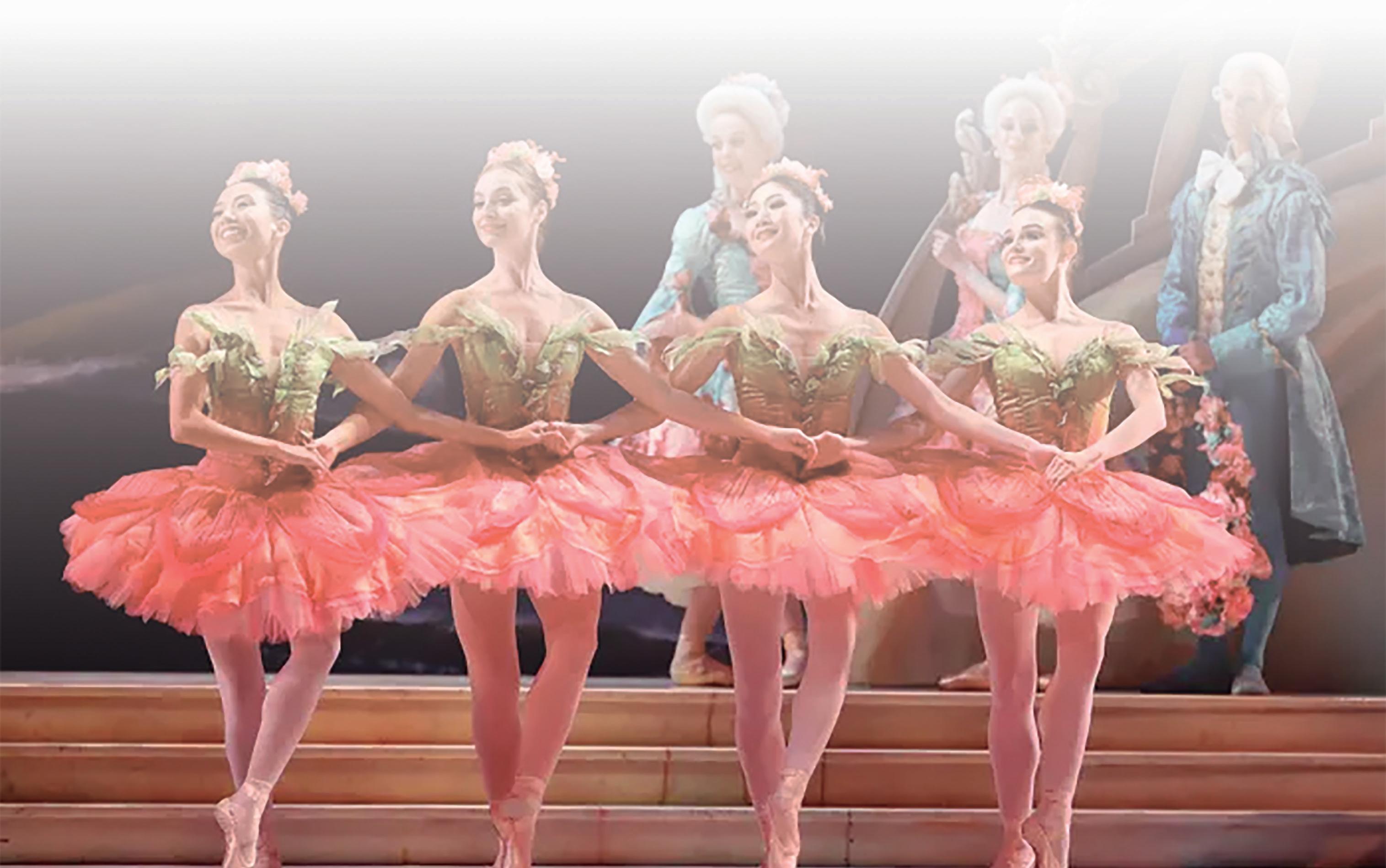
Q1� The main problem is the term “arts”, which sounds as high-end, elitist and distant to a major part of society, instead of reflecting the Aussie culture and the entertainment industry�
Q2� As pessoas acreditam que o governo não deveria destinar verbas a artes, pois acreditam que é uma situação de escolher entre destinar para as artes OU para a segurança pública, os empregos, a infraestrutura, a educação�
Q3� Resposta pessoal�
Q4� É importante compreender e interpretar resultados de pesquisa, tão populares e mutáveis, atualmente, pois o número bruto pode esconder informações diferentes e preciosas sobre a realidade�
In a breakout box inside the report, social researcher Rebecca Huntley writes that the focus groups she conducted for the survey tended to divide into an “engaged” and a “disengaged” cohort� Those in the disengaged group who are not supportive of government arts funding tended to position it as an ‘either or contest’, a choice between funding schools, public hospitals and infrastructure; or funding the arts� This attitude is not surprising given these people are more concerned than others about issues like job insecurity and provision and cost of essential services in their local area�
In part, this may come down to the design of the survey, which universally uses the word “arts” instead of the broader conception of “culture”� And what do many people think of when they hear the words “the arts”? They think of the high performing arts – particularly opera, ballet and classical music� Indeed, the report remarks that when prompted about different types of culture (like street art), many respondents were surprised and even delighted to discover that they were much more engaged with culture than they realized�
Even so, there are real warning signs here for Australian culture� According to the report, the last three years appear to have seen a genuine erosion in public goodwill towards the arts, with more Australians now seeing the arts as elitist – as “not for people like me” –and too expensive� Fewer support public funding, fewer believe the arts should be part of our education, and fewer think that artists make a contribution to society� There are other definitional problems that should not be glossed over, as important as this survey is� The survey ignores essentially all forms of screen-based culture� Movies, television and interactive games are all absent� That means cultural juggernauts like Wonder Woman, Netflix and Call of Duty are all excluded.
The Australia Council will protest that Screen Australia is the government body responsible for the screen industry and the data around it� But that means that cultural participation data is split across two different metrics and surveys, and can’t rigorously be compared� It also creates some very curious exclusions� The survey captures online music streaming through sites like Spotify, for instance, but not online video streaming through YouTube� It captures digital photography and graphic design that people make on their computers at home, but not the time they spend playing interactive games�
This only makes sense if you believe that movies and games are not really “art”� The exclusion has more to do with the Australia Council’s funding rules than with the tastes and habits of ordinary Australians� The other uncomfortable conclusion we can draw from this report is that the sorts of culture Australians engage with are not, by and large, the things that the Australia Council supports�
(Ben Eltham. The Guardian, 98% of Australians engage with the arts. Why does funding still leave them behind?. Disponível em: < https://www.theguardian.com/culture/2017/jun/28/98-of-australians-engage-with-the-arts-why-does-funding-still-leave-them-behind>. Acesso em: 15 nov 2018. Modificado.)
DISCUSSÃO
01. What is the main problem of the survey to the writer?
02. A que se deve o posicionamento desfavorável das pessoas em relação ao engajamento em artes? Responda em português.
03. Do you think YouTube videos, movies, and videogames are considered art? Why? Answer in English�
04. What lesson can you take from text that can be applied to your own life? Answer in Portuguese�
Um resumo do que existe em inglês
Para auxiliá-lo a se lembrar de todos os tempos verbais possíveis em inglês, veja o seguinte resumo Saiba que cada um apresenta mais de uma possibilidade na língua inglesa, porém são nuances que não cabem em um apanhado geral.
Simple Present Simple Past Simple Future
Indica uma ação no presente ou um hábito.
Indica uma ação que ocorreu em um momento definido do passado.
Ana loves to cook. Yesterday night, Ana cooked a delicious meal.
Indica uma ação que ocorrerá no futuro.
Ana will cook a turkey for our guests on the weekend.
Present Continuous Past Continuous Future Continuous
Indica uma ação que ocorre no momento da fala
Ana is cooking in the kitchen now.
Indica uma ação processual que aconteceu no passado Enfatiza-se a duração da ação
Ana was cooking last week, but she wasn’t enjoying it.
Indica uma ação de certa duração que acontecerá no futuro Enfatiza-se a duração da ação
Ana will be cooking our dinner soon.
Present Perfect Past Perfect Future Perfect
Indica uma ação que começou no passado, mas que ainda hoje acontece ou que influencia o presente.
Indica uma ação começada e terminada no passado Cronologicamente, quando combinado com o Simple Past, a ação indicada pelo Past Perfect sempre ocorrerá antes.
Indica uma ação que estará completada no futuro.
Ana has cooked so much in her life that she excels at it.
Ana had cooked for so long that day, but she didn’t feel tired.
Ana will have cooked at least 500 meals by the end of this year.
Present Perfect Continuous Past Perfect Continuous Future Perfect Continuous
Indica uma ação processual que começou em um momento indeterminado no passado e ainda está acontecendo hoje, como um hábito. Enfatiza-se a duração da ação
Ana has been cooking since she was 20 years old.
Indica uma ação processual que começou e se encerrou em um momento indeterminado no passado Enfatiza-se a duração da ação
Indica uma ação processual que começará e terminada em algum momento do futuro Enfatiza-se a duração da ação
Ana had been cooking alone until we got married. Now we cook together!
Ana will have been cooking for at least 2 hours before we can eat dinner.
EXERCÍCIOS DE FIXAÇÃO
01. Indique, na linha do tempo a seguir, a cronologia dos tempos simple past, past perfect, simple present, simple future e future perfect. E dê exemplos.
Passado Futuro
02. Sublinhe o tempo verbal correto em cada caso a seguir�
a) I haven’t decided yet if I want to buy a bike or get married� But I think about it/ I’m thinking about it.
b) Every weekend my parents go back/ are going back to the farm to get away from the city noises�
c) In a day, I will be reading/ will have read a good book at the beach�
d) Linda thought she was coming/ had been coming too, remember?
e) Monday night I was so hungry that I ate/ was eating a whole pizza by myself�
03. Complete cada período a seguir com o verbo e o tempo verbal corretos�
Care Marry Listen Come Try
I am ________________ to concentrate.
_______________ you ______________ when I said I didn’t want to go?
________________ you ________________ me?
No one ________________ about what we look like.
My boyfriend _______________________ to my house, but then my parents arrived�
04. (Macmillan) Decide if the verb form underlined is correct or not�
If it is correct, write a tick� If it is not, correct it�
The mysterious disappearance of Professor Dawson (1) was on Inspector Gorse’s mind� Six months before the Professor’s disappearance, he (2) was receiving a letter from Jean Dawson, the Professor’s wife� In the letter, Jean (3) accused her husband of plotting to murder her� Gorse (4) considered what his next step should be when the phone rang� It was Sergeant Adams from the Thames Valley police force. A fisherman (5) discovered a body in the River Thames, and it (6) fitted the description of the Professor.
events, and changes in rainfall patterns� Moving from global to regional scales, there is increased uncertainty over how climate will change� The probability of warming having unforeseen consequences increases with the rate, magnitude, and duration of climate change� Some of the physical impacts of climate change are irreversible at continental and global scales� With medium confidence, IPCC (2007) concluded that with a global average temperature increase of 1-4 °C, partial deglaciation of the Greenland ice sheet would occur over a period of centuries to millennia� Including the possible contribution of partial deglaciation of the West Antarctic Ice Sheet, sea level would rise by 4-6 m or more�
The impacts of climate change across world population will not be distributed evenly� Some regions and sectors are expected to experience benefits while others will experience costs. With greater levels of warming, it is very likely that benefits will decline and costs increase� Low-latitude and less-developed areas are probably at the greatest risk from climate change� With human systems, adaptation potential for climate change impacts is considerable, although the costs of adaptation are largely unknown and potentially large� According to Schneider et al� (2007), climate changes would likely result in reduced diversity of ecosystems and the extinction of many species�
Adaptado de: Wikipedia, the free encyclopedia, http://en.wikipedia.org/wiki/ Effects_of_global_warming, Acesso em Abrl/2010.
Com relação às formas verbais has shown, will change e would occur, presentes no primeiro parágrafo do texto, assinale o que correto�
01. Has shown – transmite ideia de ação que teve início há algum tempo�
02� Will change – refere-se a um acontecimento futuro�
04� Would occur – fala de uma possibilidade�
08� Todas as formas verbais se referem a acontecimentos futuros�
Anotações
05. (UEPG PR)
Effects of global warming
Over the last hundred years or so, the instrumental temperature record has shown a trend in climate of increased global mean temperature, i�e�, global warming� Other observed changes include Arctic shrinkage, Arctic methane release, releases of terrestrial carbon from permafrost regions and Arctic methane release in coastal sediments, and sea level rise� Global average temperature is predicted to increase over this century, with a probable increase in frequency of some extreme weather
W CONDICIONAIS
Antes de começar
Leia o texto a seguir sobre o físico Isaac Newton e sua famosa história da maçã.
Newton’s Apple: Science and the Value of a Good Story
Search online for any list of history’s greatest scientists and you’ll find the same names: Albert Einstein, Charles Darwin, Marie Curie, Sigmund Freud, Louis Pasteur, and so on. The order may change, but the name on top will almost invariably be that of Isaac Newton.
We can argue over such lists – they’re mostly harmless fun – but we can agree that Newton earned his place there. He quantified the laws of motion that govern our lives, and almost 350 years after he did his work, it is still useful But why is Newton better remembered than, say, Ernest Rutherford, who determined the structure of the atom, or Gregor Mendel, who brought us modern genetics? The difference, probably, is that Newton had a great story to tell
It’s the one about the apple You remember it – how the young Newton, sent home from school at Cambridge to avoid the plague of 1665, was sitting under a tree one day, saw an apple fall to the ground, and, in a flash of insight, came to understand the workings of gravity He published his Principia Mathematica in 1687 In his spare time, he designed the first reflecting telescope, laid the foundations for calculus, brought us the understanding of light and color, and in his later years – it would be disingenuous to leave this out – tried his hand at alchemy and assigning dates to events in the Bible
But that apple! Oh, to have been a chronicler of science back then, having the chance to tell this wonderful story about the magnetic young physicist from Lincolnshire Actually, there was such a person His name was William Stukeley, and in 1752 he published one of the first biographies of Newton, Memoirs of Sir Isaac Newton’s Life Newton, as an old man, had told him the tale: “After dinner, the weather being warm, we went into the garden, and drank tea under the shade of some apple trees, only he and myself Amidst other discourse, he told me he was just in the same situation, as when formerly, the notion of gravitation came into his mind Why should that apple always descend perpendicularly to the ground, thought he to himself; occasion’d by the fall of an apple, as he sat in a contemplative mood ”
The Royal Society has called the apple story “the most famous anecdote of discovery in science ” Students of physics may stumble over the math behind Newton’s laws of motion, but they’ll remember the apple Newton somehow won the good-story sweepstakes His is simple, gives us a visual image of his work, and helps explain something from our daily lives
Over the years, inevitably, the details have been embellished Ask around today, and people may tell you that the apple bonked Newton on the head But the point remains: if you have an important point to make, especially in science but also in other fields, there’s nothing like a good story to make it memorable Of course, Newton may have known that Historians say he was both a natural philosopher and a natural self-promoter A friend of mine, knowing I was writing about the apple, said, “For all we know, Newton may have embellished the story himself ”
Glossário
Amidst: entre
Embellish: acrescentar detalhes não necessaria mente verdadeiros ao se contar histórias
Exemplo 01. Arquimedes, quando descobriu a ideia que se formulou em seu Princípio, estava em sua banheira e saiu correndo, nu, pela cidade e gritando “Eureka!”� Einstein é lembrado como aquele que reprovou na escola� Oppenheimer, o diretor do Projeto Manhattan, durante a Segunda Guerra Mundial, olhou a primeira bomba atômica ser detonada e disse: “Agora eu me torno a morte, a destruidora de mundos”�
O criador do jogo de xadrez, ao ser chamado por seu rei desejoso de recompensá-lo, fez o seguinte pedido: 1 grão de trigo pela primeira casa do tabuleiro, 2 grãos de trigo pela segunda, 4 grãos de trigo pela terceira e assim sucessivamente, sempre dobrando, até a última das 64 casas� Tempos depois, o soberano deve ter sido informado por sua assessoria especializada de que jamais satisfaria aquele pedido aparentemente despretensioso, mas que significava uma quantidade fabulosa de trigo�
Exemplo 02. De acordo com historiadores, Newton sabia se promover positivamente, criando boa reputação�
Exemplo 03. O verbo modal may usado com o present perfect indica que é provável que Newton sabia que, para fazer uma informação memorável, é preciso relacioná-la a uma história.
Exemplo 04. Resposta pessoal�
DISCUSSÃO

01. É possível depreender do artigo que seres humanos aprendem melhor quando relacionam conteúdos a histórias. Que outras histórias você já ouviu que te facilitaram memorizar um conteúdo?

02. O que se quer dizer com Newton ser um “natural self-promoter”?
03. Na expressão “Newton may have known that”, o que o verbo modal may significa?
04. Que outras formas de aprender ou memorizar um conteúdo você utiliza?
Introdução
Condicionais são construções bastante utilizadas nas línguas e impõem condições para que situações aconteçam. Em português, sua principal conjunção é o se e sua conjugação encontra-se no subjuntivo. Em inglês, por sua vez, veremos que condicionais podem ser construídas de cinco modos diferentes, em que cada um expressa uma situação variada: curiosamente, essa contagem começa do zero e vai até o três, além de ter um modo misto.
Cinco modos para se expressar
Condicionais são sentenças com duas orações: uma principal e outra que começa com if (‘se’), que estão intimamente ligadas uma a outra� As condicionais são geralmente divididas em dois tipos, sendo que um deles apresenta três estruturas e o outro, duas.
O primeiro tipo engloba a condicional zero, a primeira e a segunda (zero, first and second conditionals) e são estruturadas como seguem:
W Condicional zero
Usada para expressar apenas o que é sempre considerado verdadeiro, seus verbos se encontram no presente (present simple): The light fades away if you turn down the dimmer control.

Não muda o sentido se a oração com if vem primeiro ou não�
W Primeira condicional
Essa condicional é usada para expressar situações reais e possíveis, por isso a oração que apresentar if terá seu verbo no presente e a outra oração será composta pelo futuro: will + infinitivo. É importante notar que o verbo modal will é o verbo auxiliar do tempo future: If I find my key, I will leave.
Como a condicional zero, não faz diferença se a oração com if vem primeiro ou não�

W Segunda condicional
Ela é usada para falar sobre situações ou coisas impossíveis ou irreais. Assim, sua estrutura será composta por if + passado simples e would + infinitivo. Nota-se que o verbo modal would é o passado do verbo will e se constitui como um auxiliar para a construção do sentido impossível: I’d travel around the world if I won the lottery

O segundo tipo de condicionais engloba as duas últimas estruturas: a terceira condicional e a mista
W Terceira condicional
Ela descreve, usando a estrutura if + past perfect and would + perfect infinitive, situações que não aconteceram: Philip would have done his homework if he hadn’t bingewatched that TV show.
Note que não importa se a oração com if vem antes ou depois e que, na terceira sentença, há uma proposital e correta duplicidade do verbo have Isso ocorre, porque a estrutura da oração se dá com o past perfect, cujo auxiliar é o have, e, nesse caso, o verbo principal também é have.

W Condicional mista
Na condicional mista, a oração que comporta if está em um tempo diferente da oração principal. São possíveis algumas combinações:
Quando uma ação no passado trouxe consequências para o presente.
Passado Presente
If I had studied harder, I might have a job.
Quando uma ação no passado trará consequências para o futuro.
Passado Futuro
If I had studied harder, I’d be going to Harvard next year.
Quando uma ação no passado trouxe consequências para o presente.
Futuro (ainda que o verbo esteja no passado) Presente
If I didn’t have work tomorrow, I’d go out today.
EXERCÍCIOS DE FIXAÇÃO
01. (ESPM SP) Space Space Junk Keeps Fallin’ on My Head

04. (Unesp SP) Coasting on Past Glory
The Amazon is still largely intact, but the future hinges on decisions being made now�
From the window of a Boeing, few countries are greener than Brazil� Since much of this vast territory in the heart of South America is still unpeopled and unblemished, it’s not surprising that Brazil looks good against the backdrop of a mistreated planet� It ranks 34th of 149 nations in Yale and Columbia’s Environmental Performance Index – greener than Ireland (35th) and the United States (39th)� But how long will the country be able to hold on to this favorable score?
If you knew what was going on above your head, you probably wouldn’t sleep at night. It was 54 years ago this week that the first satellite — Russia’s little Sputnik — went into orbit, and in the halfcentury since, we’ve made travel to near-earth space largely routine�
That, by almost any measure, is a good thing, but like so many good things human beings build or do or achieve, a very bad thing comes along with it: junk�
October 10, 2011 / www.economist.com
The underlined sentence ‘If you knew what was going on above your head, you probably wouldn’t sleep at night,’ in the third conditional would be:
a) Had you known what was going on above your head, you probably wouldn’t have slept at night�
b) If you hadn’t known what was going on above your head, you probably wouldn’t sleep at night�
c) If you had known what was going on above your head, you probably would have slept at night�
d) Unless you hadn’t known what was going on above your head, you probably would sleep at night�
e) Unless you had known knew what was going on above your head, you probably wouldn’t have slept at night�
02. (UECE) The sentence “Until recently, researchers thought the bilingual advantage stemmed primarily from an ability for inhibition[���] ” contains
a) a relative clause�
b) a conditional clause�
c) an adverbial time clause�
d) a noun clause�
03. (UECE) If the teacher had not recorded his students, he
a) would never have had certain insights on language acquisition�
b) will never have had certain insights on language acquisition�
c) would never has had certain insights on language acquisition�
d) could ever had certain insights on language acquisition�
To get a better look, you have to go to 9,000 meters, the altitude from which the NASA remote-sensing satellites sweep the earth� Every year, scientists at Brazil’s National Institute for Space Research (INPE) pore over satellite images to produce the most detailed survey of deforestation of any nation in the world� Such candor has won Brazil kudos, but also criticism� Brazil is the fourth biggest contributor of greenhouse gases globally, of which 75 percent comes from the felling and burning of forests� So when data released by INPE in late May showed that 5,850 square kilometers of forest (an area larger than Brunei) had disappeared from August 2007 to April 2008 – a 17 percent spike from the year before – the planet took notice� “Brazil has a fantastic endowment from nature but is failing when it comes to managing it,” says Judicael Clevelario Junior, head of environmental studies at the Brazilian Institute of Geography and Statistics (IBGE), the census bureau�
Brazil’s green laurels are not an illusion. Four fifths of its electric power comes from hydroelectric plants� It is the world leader in biofuels – nearly 30 percent of its cars run on ethanol� The trouble is that these virtues reflect sound decisions made in the 1970s, during the ambitious military government of Gen� Ernesto Geisel� Brazil has not always followed them up�
(…) Fortunately, Brazil has options� Its booming economy is not beholden to coal-fired power plants, and the rain forest is still largely intact� “Brazil has a rare opportunity to transform itself into a rich country and still maintain its natural capital,” says Clevelario Jr� If it can go back to its old habit of making the right environmental moves�
(Newsweek, July 14th 2008, http://www.newsweek.com/id/143696)
Indique a alternativa que completa a sentença:
If Brazil ���������������� back to its old habit of making the right environmental moves, it ���������������� good results�
a) goes ��� would reach
b) had gone ��� will reach
c) went ��� would reach
d) went ��� will reach
e) goes ��� would have reached
W VERBOS SEGUIDOS POR - ING Antes de começar
Leia o texto a seguir, que fala brevemente sobre a história de uma das fotografias mais famosas do mundo: Afghan Girl, do americano Steve McCurry, e discuta as questões que o seguem
The story behind the world’s most famous photograph
Three deca des ago, Steve McCurry took arguably the most iconic picture of all time Yet even after all this time, the pre-eminent photographer brims with enthusiasm when he talks about Afghan Girl “I knew she had an incredible look, a penetrating gaze,” he recalls “But there was a crowd of people around us, the dust was swirling around, and it was before digital cameras and you never knew what would happen with the film
“When I developed the picture, I knew it was special I showed it to the editor of the National Geographic, and he leaped to his feet and shouted, ‘that’s our next cover’ ” Not only did Afghan Girl become the magazine’s next cover, but the most successful in its distinguished history The striking portrait of 12-year-old Sharbat Gula, a Pashtun orphan in the Nasir Bagh refugee camp on the Afghan-Pakistan border, was taken in December 1984 and published the following year The woman, now in her forties, has recently been found to be living in Pakistan

When McCurry reflects upon its popularity, what excites him most is the impact that this single image has had on the real world “People volunteered to work in the refugee camps because of that photograph,” he says “Afghans are incredibly proud of it, as the girl is poor but shows great pride, fortitude and self-respect” “It drew attention to their plight, and inspired a lot of people ” It also led the National Geographic to set up the Afghan Children’s Fund – and meant that to this day, McCurry is never charged a fare by appreciative Afghan taxi drivers
(Jake Wallis Simons In: CNN Style. Disponível em: <http://edition.cnn.com/style/article/steve-mccurry-afghan-girl-photo/index.html>. Acesso em: 23 set 2017. Modificado.)
DISCUSSÃO
01. Em sua opinião, que características da foto de Steve McCurry a fazem tão forte e expressiva e por que ela se tornou tão icônica para o mundo inteiro?
Resposta pessoal
02. Apesar de ser o retrato de uma mulher parada, essa foto tende a acalmar ou a incomodar seu espectador?
Exemplo 2. A profundidade e a força do olhar de Sharbat Gula tende a perfurar seu espectador de modo a incomodá-lo, como se o estivesse observando. Esse olhar trouxe luz e movimentação social à situação das pessoas em vulnerabilidade no Oriente Médio.
03. Que outras fotos icônicas você conhece?
Resposta pessoal
04. Que outros fotógrafos, de qualquer nacionalidade, você conhece?
Resposta pessoal
Introdução
Alguns verbos em inglês pedem complementos que também são verbos para expressar o que se quer dizer. Seria o caso em português de “comecei a estudar para a prova”, que, em inglês, seria I started studying for the test. Veja que o verbo depois de start está no gerúndio -ing. É isso o que veremos agora e quais são esses verbos�

Forma -ing
A forma -ing, em geral, vem após:
1) verbo go para falar de atividades em geral, ao ar livre, fora de casa: Andrew went shopping for a Halloween costume; that couple loves to go dancing on Friday nights; Fran went hiking;
2) verbo do + o artigo the para mencionar atividades domésticas: my mom does the cooking and my dad does the cleaning of the dishes; I can’t go out tonight, I have to do the ironing;

3) Verbos que indicam início, continuação e fim de um processo: I have to begin working on my paper; you must stop being such an idiot and move on with your life; Josh can’t continue pranking people like this;
4) Verbos que indicam uma intenção ou uma tentativa: you should try listening to her; you can’t give up, you’re doing so well!;
Observe que é possível que os verbos start, begin e continue sejam sucedidos por verbos no infinitivo sem prejuízo de sentido: it started snowing / to snow when we left; it continued snowing / to snow when we got back.
Nos verbos stop e try, porém, apesar de poderem ser sucedidos por verbos no infinitivo, o significado da oração se altera:
5) Verbos que expressam preferências, gostos e afins: I prefer going to the movies than going to a party; she didn’t mind staying up until very late; I enjoy learning English; I hate memorizing rules;


6) Os verbos love, like, hate e prefer podem ser sucedidos de verbos no infinitivo quando indicarem uma situação condicional, hipotética ou de interesse do interlocutor: I’d really like to see you again sometime; I’d hate to park on that parking spot, it’s so tight.
7) Alguns outros termos específicos, como: admit, avoid, consider, deny, fancy, imagine, miss, postpone, practice, risk, suggest, can’t help, it’s no use / there’s no point in, it’s no good, it’s worth.


Quantificadores

Leia o texto a seguir sobre o(a) artista inglês Banksy e discuta as questões que o seguem�
About Banksy

Arguably the most controversial street artist in the world, Banksy has developed an entire art subculture devoted to his works� Banksy’s art can impact any location at any given moment� His identity remains unknown, even after over 20 years of being involved with the graffiti scene. He has worked with many different types of street art media and street art types� His work not only includes many powerful, often controversial images, but they may also be found throughout the Internet as viral images�
The most common form of street art Banksy uses are stencils� These are often in the form of multi-layered stencils and/or combined with other media sources, such as spraypaint� He also includes anything found in the streets like street signs and other objects to convey his message by crafting beautiful street art installations� His artwork is often satirical and combines dark humor with graffiti and also spread messages across art, philosophy, and politics�
Very little is known about Banksy himself, as he refuses to be interviewed and keeps his identity carefully maintained� A world-renowned mystery man, Banksy has risen through the ranks to become one of the world’s greatest street artists partly by creating an urgency to understand his character. Street art fanatics are consistently satisfied with every piece of art he delivers, though he often leaves them wanting more� This tactic carries one’s curiosity to explore a completely new perspective or idea, leaving his artistic creations to inspire beginning and advanced artists� This inspiration is also known as the “Banksy Effect�”
The media and his supporters have always questioned Banksy’s identity due to a variety of identity claims� Most recently, many popular theories, including an entire newspaper publication, pointed his identity at being a Bristol native by the name of Robin Gunninham� If this theory holds true, it will allow even greater insight into the artistic world Banksy inhabits� What is even more interesting is that he has managed to completely conceal his identity from his family� To this date, no Banksy identity claim has ever been definitive.
Banksy’s artwork has been seen across the world� His travels have included Australia, England, the United States, Israel, Jamaica, and even Canada� Most recently, he spent an entire month glamorizing New York City with his street art, which grabbed the attention of thousands every day�
(Disponível em: < http://www.streetartbio. com/banksy>. Acesso em: 23 set 2017.)
DISCUSSÃO
01. Que crítica social está presente na obra da imagem?

02. Banksy é um(a) artista (ou uma coletânea de artistas?) mundialmente reconhecida de obras imediatamente reconhecíveis. Você acredita ser importante que se descubra quem Banksy realmente é? Qual será a intenção do(a) artista em permanecer anônimo(a)?
03. Mesmo que suas obras estejam deslocadas dos tradicionais locais artísticos, como galerias e museus, Banksy faz arte O que isso nos ensina sobre arte?
04. Banksy é um(a) artista que grafita, não picha. Que diferenças podem ser citadas entre pichação como vandalismo e grafite como arte?
Introdução
Nós já vimos dois quantificadores em aulas anteriores, enough e too. Agora veremos alguns outros famosos: much, many, plenty, little, few, a lot, either, neither e both. Essas palavras são importantes, pois possuem algumas regras de uso que podem ajudá-lo a interpretar textos. Voltando ao nosso esquema, temos que: identificar um substantivo desconhecido > olhar seu arredor > observar se há um quantificador > lembrar de suas regras de uso > ter noção do substantivo desconhecido.
Muito ou pouco?
As palavras much, many, plenty e a lot são traduzidas, basicamente, como 'muito' de alguma coisa; por sua vez, few e little são traduzidas como 'pouco', de modo bem simplificado. Em inglês, seus usos variam, até porque são muitas palavras para expressar similaridades
I. Much e little são usados para substantivos incontáveis (que não são identificados como unidades): I have so much time and I have so little money to spend!;
II. Many e few, por sua vez, são para substantivos contáveis: I have a few dollars to spend, so I’ll buy many comic books;
III. A lot (of), lots (of) e plenty (of) são usados com substantivos incontáveis: he has a lot of luck; she bought lots of books; she has plenty of ideas for our project.
Há uma observação interessante quanto aos membros de um grupo em geral, pois é possível acrescentar um substantivo logo após um quantificador. Veja:
Exemplo 01. A principal crítica de Banksy na obra é como as mídias sociais, Instagram, no caso, se tornaram o centro da vida de muitas pessoas Não receber curtidas, comentários, inscrições, aplausos é motivo de fracasso, de impopularidade, de vergonha É preciso se mostrar melhor do que os outros e ser reconhecido por isso O fato de se ter escolhido uma criança, a que associamos choro à fome ou à vontade de brinquedo, mostra que essa cultura do aplauso está tão enraizada que se apresenta logo nas primeiras etapas da vida
Exemplo 02. Resposta pessoal / Sua intenção pode ser perpetuar e dar força à ideia, em vez de se relacionarem as obras a uma pessoa O anonimato coloca o foco na crítica e não no crítico O(a) artista pode ainda buscar sua privacidade por motivos de segurança
Exemplo 03. Arte é uma forma de se refletir a sociedade e se refletir sobre ela. Geralmente, períodos artísticos estão relacionados aos ânimos da sua época. Hoje, nos cotidianos corridos e urbanos, em que não há muito tempo para visitar espaços fechados, as obras na rua de Banksy entram como uma solução visível e eficaz de se consumir arte, que geralmente tem como objetivo críticas social, econômica, política, urbana
Exemplo 04. Para se preparar para esta discussão, o professor pode buscar o texto presente neste link: https://goo gl/MxofoU

Para se referir a um grupo específico de pessoas ou coisas, usamos a estrutura quantificador + of the + substantivo:
Um ou outro, nenhum ou os ambos?
Usamos either, neither ou both para nos referir a duas pessoas ou coisas�

Either indica uma escolha entre duas opções, neither combina duas ideias negativas e both, duas ideias positivas�

Os três podem funcionar como pronomes e, nesse caso, estarão antecedidos por of + substantivo:

I’ve known you for months now, but I haven’t met either of your two brothers yet�
Neither of the explanations you gave me satisfied me.
Both of them left when you made that stupid joke�
Quando either e neither funcionam como advérbios, eles são palavras de ligação que podem ser acopladas ao final de uma sentença negativa. Com neither, sujeito e verbo são invertidos, mas não com either:
– I can’t make it to Fran’s birthday party�
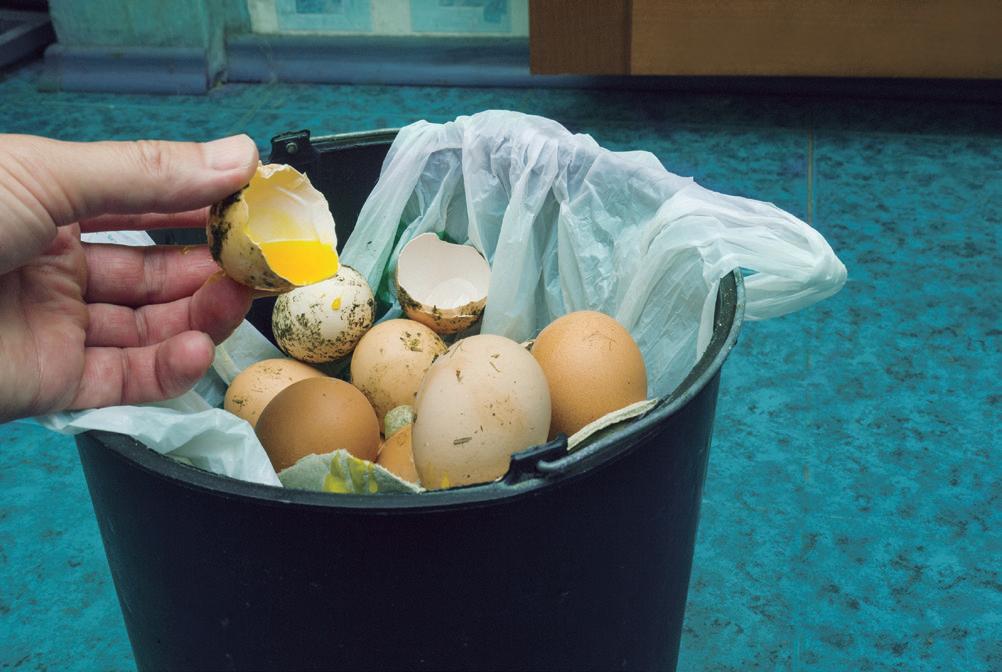
– No, neither can I� OU – No, nor can I� OU – No, I can’t either�


A concordância dessas duas palavras com o verbo que as segue pode ser tanto no singular quanto no plural, sem prejuízo gramatical�

Neither ainda pode ser usado com a palavra nor para indicar nenhuma das duas pessoas ou coisas:



EXERCÍCIOS DE FIXAÇÃO
01. Escolha a forma verbal (infinitivo ou gerúndio) gramaticalmente correta para cada caso�
a) I want (taking / to take) some traveller’s cheques abroad with me. ______________________________________
b) Do you fancy (coming / to come) to have a look round the new shopping mall? _________________________________
c) Mom can’t stand people to (push / pushing) in queues�
d) I’m sorry to (tell / telling) you that the store is about to close�
e) We try to go to (swim / swimming) every weekend during the summer. ___________________________________
f) I’d like (knowing / to know) more about savings accounts, please. _______________________________________
g) They hope (catching / to catch) shoplifters by having all those CCTV cameras. _______________________________
h) Ron’s given up (buying / to buy) Superman comics�
i) Now you’ve retired, do you miss (working / to work) at the bank? _____________________________________
j) I promise not (spend / spending) all my pocket money in one go. _______________________________________
02. Complete as lacunas usando a forma -ing ou o infinitivo.
a) Mary enjoys ________ to music. (listen)
b) I don’t mind _______ the washing up. (do)
c) Irregular verbs are not easy ________. (remember)
d) Matthew is really good at ________. (cook)
e) She waited ________ a movie ticket. (buy)
f) The doctor encouraged his patients ________ healthy food. (eat)
g) My flat is easy ________. (find)
h) She is interested in ________ a doctor. (becoming)
i) He is saving money ________a new car. (buy)
j) When I met her I couldn’t help ________ her. (hug)
k) My favorite hobby is ________. (cook)
l) My father helped me ________ my homework. (do)
m) I’m sick of ________ hamburgers every day. (eat)
n) It is important ________ the net for more information. (surf)
o) She advised me ______ a doctor as soon as possible. (see)
03. Assinale a opção gramaticalmente correta que preenche a lacuna�
She avoids ________ her ex-boyfriend.
a) meeting d) not to meet
b) to meet e) meets
c) to meeting
04. Assinale a opção em que as construções tanto do gerúndio quanto do infinitivo são possíveis.
a) Lilly had postponed to travel/travelling to India�
b) My parents never considered to move/moving to another country�
c) I began to ski/skiing when I was four years old�
d) I don’t mind to do/doing the dishes�
e) I enjoy to study/studying English�
05. Julgue a afirmação a seguir:
No período: He continued to be stubborn, é possível substituir o complemento “to be stubborn” por being stubborn sem prejuízo gramatical�
06. (IF PE) Worldwide, more than 500 million people use the Internet� On the Net, you can send electronic mail (e-mail), find information in distant libraries and museums, play games, shop, and much, much more� The World Wide Web (www) is a part of the Internet that lets you see information using pictures, colors, and sounds� Most people just call it the Web� You can have your favorite Web sites� It’s your choice� With the Internet, the world is yours! These are just some of the things you can do:
- You can watch movie trailers, download free music and books, and discover about your interests and favorite things�
- You can meet people from other countries� The Internet is global, so you can make friends from all over the world�
- You can give your opinion on message boards, build your own site about foot-volley or beach soccer or put your poems on the Net�
- You can get legal music� There are plenty of legal places to get music downloads�
- You can listen to music on-line too� For example, you can listen to music shows on the BBC site whenever you want�
- You can use search engines, like Google, Yahoo or All the web to look for any subject under the sun�
In a word, with the Internet the world is yours!
(MARQUES, Amadeu� Inglês Série Brasil. Editora Ática, São Paulo-SP, 2007� P� 54)
In the sentence: “There are plenty of legal places to get music downloads” The expression “plenty of” can be replaced by which quantifier to guarantee the meaning of the sentence?
a) Few�
b) Some�
c) Any�
d) Lots of�
e) Little�
07. Assinale a opção que completa corretamente as lacunas�
In order to __________ German, I __________ their declensions.
a) start learning - tried memorizing
b) starting to learn - tried memorizing
c) learning - tried to memorizing
d) starting learning - tried to memorizing
e) started learning - tried to memorize
Anotações
W COMPARATIVOS E SUPERLATIVOS
Antes de começar
O texto a seguir trata de um fenômeno de linguagem em que o falante brinca com a grafia e/ou a sonoridade de palavras em contextos inesperados, chamado pun Muito comum em países de língua inglesa, esse fenômeno divide opiniões: alguns amam, outros detestam. Leia-o e responda às questões que seguem.
Why do Puns Make People Groan?

The once-exalted form of wordplay takes a lot of heat these days.
When it comes to puns, it often seems like people are either lovers or haters—they can take them or leave them, make them or grieve them The pun-haters are in storied company They can count among their ranks Samuel Johnson, author of the 1755 Dictionary of the English Language—not the first English dictionary, but one of the most influential before the Oxford English Dictionary came along It took him nine years to nail 42,000 slippery definitions to the page, so it’s understandable that he might take it a bit personally when people messed with the rules he took so long to create Before him, the printing press also placed some binding on language and it helped transform what had been an oral culture into a written one, forcing writers to commit to a single spelling before the type was set
“To trifle with the vocabulary which is the vehicle of social intercourse is to tamper with the currency of human intelligence,” Johnson once wrote “He who would violate the sanctities of his Mother Tongue would invade the recesses of the paternal till without remorse.” But the plight of any dictionary-writer is the inherent fluidity of language, which is the pun-trepreneur’s delight
“Puns are threatening because puns reveal the arbitrariness of meaning, and the layers of nuance that can be packed onto a single word,” says John Pollack, a communications consultant and author of The Pun Also Rises. “So people who dislike puns tend to be people who seek a level of control that doesn’t exist If you have an approach to the world that is rules-based, driven by hierarchy and threatened by irreverence, then you’re not going to like puns ”
Peter McGraw, the director of the Humor Research Lab at the University of Colorado, Boulder, has a theory about what makes things funny He calls it a benign violation— something that subverts or threatens a norm, but not in a way that feels harmful and puns would fall under the pun-brella of communication violations
“They can be a demonstration of wit, of cleverness,” McGraw says “You’re relying on a person’s ability to parse language, to understand the nuances and complexities of words ” Perhaps that’s why, according to Pollack, “for most of Western history, puns were a sign of high intellect They were a tool, and they remain a tool, to pack more meaning into fewer words ” Shakespeare, it is often pointed out, was a merry scribe and punster
“I think another question to ask that’s just as relevant is why is sarcasm considered cool by the same people who often decry puns as uncool?” Pollack asks “Both are a way of saying one thing and meaning another In an age of cynicism it’s safer, socially, to tear something down through sarcasm or irony than it is to build something up through punning ”
Still, if the pun rose as the best, it has yet to set as the least Puns are still popular in ad campaigns and marketing (Ben and Jerry’s being a notable example), and used in TV and movie titles, like Grey’s Anatomy or Transparent The cartoon Bob’s Burgers has a title sequence built entirely around puns that change every episode
Did you hear about the Italian chef who just died? He passed way, just ran out of thyme His wife is still upset, chesse not over it, because she never sausage a tragedy coming Sadly, there's just not mushroom for Italian chefs in the world today
Gabarito 01
Did you hear about the Italian chef who just died? He passed way, just ran out of time� His wife is still upset, she is not over it, because she never saw such a tragedy coming� Sadly, there’s just not much room for Italian chefs in the world today�
Elemento comum: trata-se de troca para nomes de alimentos usados na cozinha italiana�
Gabarito 02
Resposta pessoal. Pode-se citar “tudo passa, até uva passa”, “eu não quis sair, mas a Cássia Kiss”, “isso é disneycessário” etc.
Gabarito 03
Resposta pessoal�
Gabarito 04
Neologismos; empréstimos de palavras de outras línguas; abreviações radicais - comuns em redes sociais - como “deletar”, “benchmark”, “vc” etc�
But Pollack thinks the haters are defining the term pun too narrowly� “Puns don’t have to be spoken,” he says� “There are also visual puns�” Google’s changing logo, the letters replaced with doodles for special occasions, is one example of a visual pun� Pollack brings up Pablo Picasso’s sculpture Bull’s Head, which is made from a bicycle seat and handles�
(Julie Beck� In: The Atlantic. Disponível em: <https://www�theatlantic�com/technology/ archive/2015/07/why-do-puns-make-people-groan/398252/>. Acesso em: 23 jan 2018. Modificado.)
Glossário
Parse: analyze context into logical syntactic components
Plight: a dangerous, difficult, or otherwise unfortunate situation
Till: cash recipient
Trife: to treat something without seriousness or respect
DISCUSSÃO
01. Traduza o texto na imagem para o inglês padrão, desfazendo os puns� Qual o elemento comum em todos eles?
02. Você se lembra de puns, o que chamamos de trocadilhos, em português? Quais?
03. Do you find puns funny? Why? Write a small paragraph giving the reasons why or why not. You can base your arguments in some ideas from the text�
04. Que outras violações da norma-padrão são comuns no dia a dia, seja em português, seja em inglês? Dê exemplos.
Introdução
Tanto em português quanto em inglês, adjetivos são palavras que se juntam a um substantivo para modificar seu significado, acrescentando-lhe noções de qualidade, natureza, estado etc. Flexionados, eles podem exprimir comparações entre um estado e outro do mesmo substantivo, entre um substantivo e outro ou exprimir sua superioridade – ou inferioridade – em relação aos outros substantivos de sua categoria� A seguir, estudaremos como se flexionam e quando são utilizados esses adjetivos em ambos os casos�
Adjetivos comparativos
Formação
W Adjetivos curtos
A forma mais facilmente identificável de adjetivo no comparativo é o acréscimo da flexão –er e variantes ao final de adjetivos curtos, de apenas uma ou duas sílabas. São exemplos great, nice, ugly e fat, que, flexionados, tornam-se greater, nicer, uglier e fatter.
A regra geral é acrescentar –r em adjetivos terminados em “e” e acrescentar –er em adjetivos terminados em consoante�
#Curiosidade
É importante notar que categorizamos os adjetivos curtos como possuidores de apenas uma ou duas sílabas, mas não falamos sobre como essas sílabas são separadas. Infelizmente, a separação silábica no inglês não é similar ao português, pois ela considera o conhecimento da configuração morfológica das palavras: isto é, prefixo, raiz, sufixo, flexão, concordância etc., além da sílaba tônica. Portanto, conhecer essa técnica de hifenização é um processo longo e não interessa ao Ensino Médio. Sugere-se ler muitos textos em inglês, assistir a telejornais, escutar músicas e aprender pelo contato com a língua e pelo uso. Quando em dúvida, consulte o dicionário sobre a hifenização.
Verbete retirado do dicionário online Merriam-Webster, que indica sua classificação gramatical, sua separação silábica e sua transcrição fonética.

Nos quatro exemplos citados anteriormente, há dois que fogem à regra geral:
x o adjetivo ug ly , da mesma forma que pretty , tidy , angry , easy , terminam em y e essa condição determina que a flexão retire o y e acrescente - ier � Veja: uglier , prettier , tidier , angrier , easier ;

x observe que o adjetivo fat , assim como fit , sad , mad , big , são formados por uma estrutura singular - consoante + vogal + consoante� Essa estrutura, quando no final da palavra, demanda à flexão a repetição da última consoante antes do acréscimo do - er Veja: fatter, fitter, sadder, madder, bigger
Assim, temos a seguir a forma final dos adjetivos curtos:
Adjetivo + flexão
Adjetivos longos
Para adjetivos com três ou mais sílabas, não os flexionamos. Mantemos sua estrutura intacta e juntamos aos comparativos more (‘mais’) ou para transmitir o significado desejado� São exemplos: more attractive, more exquisite, more confident.
Usos
x Usamos comparativos para descrever pessoas e coisas: I’m feeling better now; my sister needs a bigger house;
x Junto com a conjunção than para comparar algo com outro: Brazil is a bigger country than Belgium; my cat is sweeter than my dog; he’s a better player than me; Anna is more confident than Sarah;
x Quando descrevemos como algo muda gradativamente: the gas price is more and more expensive in Brazil; your kid keeps getting bigger and bigger;
x Quando se quer expresser duas ideias interdependentes, é comum inverter a ordem fraseológica: the higher they climbed the Everest Mountain, the colder it got; the faster you go, the more dangerous it is.
Adjetivos superlativos Formação

W Adjetivos curtos
A construção dos superlativos segue os mesmos princípios de quantidade de sílabas e de terminação da palavra� Em vez de acrescentar -er, acrescentamos -est e, antes do adjetivo flexionado, colocamos o artigo definido the Veja:
Adjetivo curto + flexão de superlativo Forma final sweet + (-est) the sweetest cute + (-st) the cuttest happy + (-iest) the happiest hot + (-test) the hottest
Adjetivos longos

Para adjetivos com três ou mais sílabas, em vez de more, adicionamos the most antes do adjetivo intacto: the most attractive, the most exquisite, the most confident.


Adjetivos irregulares
Alguns adjetivos, por razões históricas de evolução linguística, têm comparativos e superlativos irregulares. Nesse caso, é preciso memorizá-los:
Adjetivo irregular Comparativo Superlativo good better the best bad worse the worst little (quantidade) less the least much/many more the most far (tempo) further the furthest far (distância) farther the farthest late (ordenação) latter the last old (pessoa) elder the eldest


Advérbios
As mesmas construções dos adjetivos comparativos ocorrem nas palavras que acompanham e caracterizam verbos –os advérbios. Assim, em vez de comparar pessoas, animais, objetos, comparamos ações: I always work harder than everyone else in my team. Suzana slept way faster than she intended.
Complementos
Por fim, veja algumas construções possíveis para completar uma comparação em inglês:
EXERCÍCIOS DE FIXAÇÃO
01. Complete cada período a seguir com a forma comparativa correta dos adjetivos dados entre parênteses. Adicione than caso necessário.
a) noisier than; b) more economic; c) colder; d) easier than; e) better
a) Old vacuum cleaners are much ______________________ (noisy) new ones
b) Gas is so expensive in Brazil! We need ________________ (economic) cars
c) I prefer _________________ (cold) temperatures, that’s why I want to move to Canada
d) With mobile phones, communication is way ________________ (easy) it was before them
e) My cousin lived in the countryside, but now she live in a big city She believes her life was ______________ (good) then.
02. Complete corretamente os períodos abaixo com as palavras entre parênteses, utilizando comparativos.
a) This Swiss watch ______________________ (keep time/ accurate) this chinese one
b) My mother _______________________________ (call me/often) my brother
c) Thor _________________________ (score/ affection) from his father _________ his brother Loki.
d) Kate ____________________ (sing/bad) Rebecca.
e) Those lights ______________ (shine/ intense) I can bear.
03. Escolha e circule a palavra ou expressão que complete corretamente cada caso a seguir, de acordo com a língua inglesa padrão
a) Yours; b) Than; c) Fattier; d) He is; e) Mine
a) My car is less efficient than your/yours.
b) These blue jeans is softer then/than those.
c) Picanha is fatty, but bacon is fattier/fattier than
d) Professor Roger is 40 years old All his colleagues are older than he is/he does
e) Paul’s cat is younger than my/mine
04. Complete corretamente cada comparação abaixo com a informação entre parênteses sem repetir o substantivo.
a) My teacher takes better photos ___________________________ (his partner) Than I do
b) This printer prints in worse quality ________________________ (your printer) That’s saying a lot! Than yours
c) You finished homework earlier ____________________________
(your brother) Than your brother did
d) One’s bed is more confortable ____________________________
(anyone else’s bed) Than anyone else’s
x Pode-se usar um pronome objeto com ou sem o verbo auxiliar da oração: Lucas is 1,80 m tall. Andrew is taller than him (informal) OU Andrew is taller than he is (formal)
x É possível utilizar um verbo auxiliar para que não se repita o verbo principal: Steph dances better than Mat does
x Um possessive, seja um pronome seja um substantive acompanhado de apóstrofo também são passíveis de completar a comparação: My mouse was more expensive than Gilmar’s . My mouse was more expensive than his.
x Se a comparação estiver clara, a segunda parte não é necessária. My mouse was more expensive than Gilmar’s, but it’s worse !
e) Jamie Oliver’s knife is more dangerous ______________ (Julia’s kitchen knife) Than hers
05. Look at the charts comparing three laptop computers Then complete the sentences with the comparative form of the adjectives and adverbs in parentheses
a) (large / small) The screen of the T400 is ________________ the A-50’s, but it is _______________ the XJ7’s.
b) (light / heavy) The XJ7 is ______________________ the A-50, but it is________________ the T400.
c) (new / old) The A-50 is ______________________ the T400, but it is ________________ the XJ7.
d) (cheap / expensive) The T400 is ________________ the XJ7, but it is ________________the A-50.
Anotações
Questão 05.
a) Bigger than/ smaller than
b) Heavier than/ lighter
c) Newer than/older than
d) Cheaper than/more expensive than
W MODAL VERBS
Verbos modais Forma negativa Forma negativa contraída Can Cannot Can’t
May May not ---x--Must Must not Mustn’t Shall Shallnot Shan’t
Will Will not Won’t Could Couldnot Couldn’t Might Mightnot Mightn’t
Oughtto Oughtnotto Oughtn’tto
Should Shouldnot Shouldn’t Would Wouldnot Wouldn’t
Os verbos modais são utilizados para sentidos de permissão, habilidade, possibilidade, dedução,proibição, obrigação, necessidade, conselho, futuro e futuro do pretérito.
Vejamos:
Ability
W Can
Edward is a quite clever boy, he can speak four different languages
(Eduardo é um garoto muito esperto, ele pode falar quatro línguas diferentes )
Obs.: Podemos substituir o verbo modal can por to be able to para indicar habilidade ou capacidade
Ex. Edward is a quite clever boy, he is able to speak four different languages
(Eduardo é um garoto muito esperto, ele pode falar quatro línguas diferentes )
W Could
Edward was a quite clever boy, he could speak four different languages (Eduardo era um garoto muito esperto, ele podia falar quatro línguas diferentes )
Do mesmo modo, poder ser substituído por to be able to, neste caso, o verbo to be deve ser flexionado no passado.
Obs.: Também expressa habilidade, porem para situações ocorridas no passado.
Possibility
W May
He may come tonight (Ele deve vir esta noite )
We may go out tonight Do you want to join us?
(Nós devemos sair hoje a noite, quer juntar-se a nós?)
Indica uma possibilidade mais remota, de menor probabilidade
She hasn’t studied as much as she would like, but she might pass
(Ela não tem estudado como gostaria, mas pode ser que ela passe )
We might go out, I don’t know yet! (Devemos sair, mas ainda nao sei)
W Can
Também indica possibilidade, geralmente vem seguido do verbo tobe
Traveling to Italy can be a good choice to this holiday (Viajar para Itália pode ser uma boa escolha para este feriado )
W Could
Indica uma possibilidade incerta, futura e hipotética.
We could be together for a long time (Poderíamos ficar juntos por um longo tempo.)
They could at least think about (Eles podiam pelos menos pensar sobre o assunto )
Obs.: Could não é utilizado de forma negativa neste contexto
Deductionand Negative Deduction
W Must
Utilizamos must para deduções, quando uma ação ou fato nos leva a uma conclusão Muitas vezes, seguido de be
He’s very tall, He must be a basketball player (Ele é bem alto, deve ser um jogador de basquete)
‘’… it must have been love, but it’s over now ’’ ( isto deve ter sido amor, mas agora acabou )
Obs.: Não utilizamos must not (mustn’t) para esse contexto, pois daria uma ideia de proibição, ao invés, empregamos Cannot/ Can’tbe
Compare:
He’s too short, He can’t be a basketball player (Ele é baixo demais, não deve/pode ser um jogador de basquete )
He’s too short, He mustn’t be a basketball player (Ele é baixo demais, não deve/pode ser um jogador de basquete)
Neste casso, ele é impedido de jogar por ser muito baixo.
Permission
W Can
Can I talk to you for a moment teacher, please? (Posso falar com o senhor por favor professor?)
W May
Utilizamos May para pedidos formais ou de maneira mais culta
May I have a word with you professor, please? (Posso falar com o senhor por favor professor?)
W Could
Podemos utilizar could ao invés de can para tornar a frase mais formal ou respeitosa
Could you please help me with this exercise? (Poderia me ajudar com este exercício por favor?)
Prohibition
W Can’t / Mustn’t
You can’t / mustn’t park here (Você não pode estacionar aqui.)
You can’t / mustn’t wear a hat in class (Você não pode usar chapéu na aula.)
Obs.: Must not ou Mustn’t expressa maior ênfase na proibição
May not é umamaneirabem formal de proibir. You may not smoke in this house (Você não pode fumar nesta casa )
Obligation
Para expressar ordem ou obrigação utiliza-se must You must get a visa to come to The U S A (Você tem que obter um visto para vir aos Estados Unidos ) Obs.: Podemos utilizar também haveto / hasto para indicar obrigação ou necessidade, no entanto, must traz uma maior ênfase.
Students have to wear uniform as long as they stay in school (Os alunos devem usar uniformes sempre que estiverem na escola )
Obs.: Em casos no passado utilizamos apenas hadto e nunca must
When I was a child I had to wear a horrible uniform at school! (Quando era criança eu tinha que usar um uniforme horrível!)
Advice
W Should
We should eat healthier food� (Nós deveríamos comer comida maissaudável.)
You should have gone to London last year� (Você deveria ter ido a Londres ano passado)
You shouldn’t drive so fast� (Você não deveria dirigir tão rápido.)
W Oughtto
Em situações mais formais, podemos substituir should por ought to, no entanto o sentido é o mesmo.
You ought to invest in stock Market Sir�
(Senhor, você deveria investir na bolsa de valores)
Obs.: Em casos de condições, would também pode ser utilizado para dar conselhos e sugestões.
If I were you, I would never do that� (Se eu fosse você, eu nunca faria isso�)
W Would
Em geral, flexiona o verbo no futuro do pretérito.
Usos:
Pedido formal:
Would you please bring me that report? (Você poderia por favor me trazer este relatório?)
Oferta à alguém:
Wouldyoulike some cake?
(Você gostaria de um pouco de bolo?)
Futuro do pretérito:
I would go withyou� (Euiria com você.)
Shewouldneverunderstand (Ela jamais entenderia�)
I’d read a good book� (Eu leria um bom livro)
Recusa:
I told him not to go, but he wouldn’t listen� (Eu disse-lhe para não ir, mas ele não quis me ouvir�)
W Will
Expressa situações no futuro.
I will become a doctor some day� (Me tornarei um médico algum dia.)
I won’t wait until tomorrow� (Eu não esperarei até amanhã.)
W Shall
De uma maneira muito formal, usamos shall ao invés de will, quando o sujeito da oração for I ou we
I shall study all day� (Eu vou estudar o dia todo amanha�)
We shall contact you very soon� (Vamos te contactar muito breve)
Usamos shall, com I ou we quando damos alguma sugestão� Shall I turn off the light? (Devo apagar a luz?)
Para dizer que alguma coisa certamente deve acontecer, ou que você está
I shall be your teacher , there fore, be prepared� (Eu deverei ser seu professor, portanto, esteja preparado�)
W Conclusão:
Em geral, os verbos moldais são aplicados nas seguintes formas�
Ability Can, Could (to be able to)
Possibility May, might, can, could
Deduction Must, may, might (Be)
Prohibition Can’t, mustn’t
Obligation Must, have to, has to, had to Neg. deduction Can’t (BE)
Advice Should, ought to, would (conditional)
Future Will, Shall (I /we)
EXERCÍCIOS DE FIXAÇÃO
01. Choose the suitable modal verb

a) I have no time.I _____ leave now or I____ miss the bus.
b) I wish I ______ buy a new mobile phone but I don’t have enough money
c) She looks tired; She ___________ take some days off.
d) Judy is not at home. She________ have gone to Madrid, I don’t know
e) Tom _________ play tennis quite well. I usually play with him every weekend
f) ________we go out tonight, please? Yes, butyou _____ be here late
g) I haven’t decided yet where I _______ go in my next holidays. I think I__________ go to Paris.
h) _______you water my plants while I am away? If they don’t get enough water they__________ certainly die.
02. Insert a suitable modal verb
a) Jack ________come to our wedding, but we aren’t sure.
b) _______I buy the tickets for the concert? I ___________see you’re too busy
c) We ______ pay the fees at the fixed time.
d) You _________clean your room more often.
e) If it rains on Saturday, we ________go to the beach.
f) ______you speak German? No, I ________.
g) Jane _________ not play the violin when she was five, but now she ______play it very well.
h) You _________not be so nervous. I think it be very easy.
03. Choose the most appropriate modal for expressing the idea specified in parentheses.
a) You don’t look well. You ______ see a doctor. (Advice)
b) _________ you lending me your CD player for a couple of days? (Request)
c) Whose book is this? – I am not sure. It _______________ be Anna’s (Possibility)
d) She _________________ to go home yesterday because her little son was sick (Necessity)
e) You ____________ leave work at 3:30 today. (Permission)
f) Though he was ill and weak, he _________________ get out of the burning building (Ability)
g) The windows look clean. You __________________ wash them. (Absence of necessity)
h) You ____________ disturb him during his work! (Prohibition)
i) Whose car is this? – It _____________________ be Anton’s. I think I saw him driving a red car like this one (Strong probability)
j) I don’t believe it. It _________________ be true. (Impossibility)
Exercises Enem
04. Cartuns são produzidos com o intuito de satirizar comportamentos humanos e assim oportunizam a reflexão sobre nossos próprios comportamentos e atitudes. Nesse cartum, a linguagem utilizada pelos personagens em uma conversa em inglês evidencia.
a) predominância do uso da linguagem informal sobre a língua padrão
b) dificuldade de reconhecer a existência de diferentes usos da linguagem
c) aceitação dos regionalismos utilizados por pessoas de diferentes lugares
d) necessidade de estudo da língua inglesa por parte dos personagens
e) facilidade de compreensão entre falantes com sotaques distintos
05. Aproveitando-se de seu status social e da possível influência sobre seus fãs, o famoso músico Jimi Hendrix associa, em seu texto, os termos love, power e peace para justificar sua opinião de que

a) a paz tem o poder de aumentar o amor entre os homens
b) o amor pelo poder deve ser menor do que o poder do amor
c) o poder deve ser compartilhado entre aqueles que se amam
d) o amor pelo poder é capaz de desunir cada vez mais as pessoas.
e) a paz será alcançada quando a busca pelo poder deixar de existir
Anotações
MÓDULO 07 A
W ADVERBS OF MANNER
Os advérbios de mo do são utilizados para indicar como alguma coisa acontece ou é feita.
Em geral respondem à pergunta “How…?”
How does my friend Pimenta drive? He drives carefully Esses advérbios geralmente são formados adicionando-se a terminação -ly ao adjetivo
Adjetivo: quick slow careful strict
Advérbio: quickly slowly carefully strictly
He has looked at me sadly (= in a sad way)
Giovanna speaks too quickly
b. Esses advérbios, em geral, são encontrados após um verbo, contudo eles também podem vir antecedendo um adjetivo, um particípio passado ou um outro advérbio, a fim de modificar ou especificar seu sentido.
Mr White, I’m terribly sorry. (advérbio-adjetivo)
Thanks God, nobody was seriously injured in that terrible accident. (advérbio-particípio passado)
Marcela today is writing incredibly slowly. (advérbio-advérbio)
Preste atenção à mudança na grafia, que ocorre quando da criação de alguns advérbios.
* quando o adjetivo termina em -y, o -y transforma-se em -i, antes do acréscimo do -ly. lucky - luckily happy - happily
* cuidado: shy - shyly
* quando o adjetivo termina em -ple, -ble, ou -tle acrescentamos -y no lugar do -e simple - simply
noble - nobly gentle - gently
Certos advérbios têm a mesma forma do adjetivo:
My brother Bill has an early departure He will leave early tomorrow
Mr Brown has got a brand new fast car He usually drives fast
Amanda has beautiful long straight hair Go straight ahead!
I. O advérbio que deriva do adjetivo good é well, o que deriva do adjetivo bad é badly Raphael swims very well
Sorry, my friend, but this composition is badly written
II. Alguns advérbios possuem duas formas, com e sem -ly, criando diferentes significados:
x Beacause of the weather the firemen are working hard
x Maurício is hardly ever at work
x How high do you think the plane is flying?
x I think this situation is highly improbable
x Is everything fine , Albert?
x Chop the parsley finely
EXERCÍCIOS DE FIXAÇÃO
01. How are the speakers saying the sentences below? Match each sentence with the best adverb Write the adverb in the blank
Example: “Shhhhh, don’t say a word,” she said quietly politely sadly nervously quickly shyly incorrectly impolitely happily angrily kindly
Anotações
a) Happily
b) sadly
c) quickly
d) incorrectly
e) Politely
f) impolitely
g) angrily
h) nervously
i) shyly
j) kindly
a) “I just got engaged!” she said _______________.
b) “My dog just died,” he said _______________.
c) “I’m in a hurry,” she said ________________.
d) “I no make mistakes,” he said ______________.
e) “May I please make a telephone call?” she asked ______________.
f) “Bring me a menu, fast!” he said __________________.
g) “This is the last time I’m telling you! Clean up your room!” she said _____________.
h) “W-w-will you m-m-marry m-m-me?” he asked __________.
i) “Please don’t ask me to speak in front of the class,” she said
j) “Can I help you?” he asked _____________________.
02. Read each statement Use the adjective in parentheses to make another statement with an adverb
Example: My son is a safe driver (careful)
My son drives carefully
a) Baryshnikov is an excellent dancer (graceful)
b) Uta piipig is a great runner (fast)
c) My father is a good teacher (patient)
d) The presudent is a good speaker (effective)
e) Andrea Bocelli is a wonderful singer (beautiful)
f) Teachers are hard workers (diligent)
g) He is a well behaved child (polite)
h) Some students are fast learners (quick)
i) These painters are messy workers (sloppy)
j) She is a good thinker (quick/clear)
a) dances gracefully
b) runs fast
c) teaches patiently
d) speaks effectively
e) sings beautifully
f) work diligently
g) behaves politely
h) learn quickly
i) paint sloppily
j) thinks quickly/clearly
Badalmenti, V & Stanchina, C H (2000) Grammar Dimensions Form, Meaning, and Use Boston: Heinle & Heinle Publishers
PAS
W PRONOMES DE DISTRIBUIÇÃO E DE RECIPROCIDADE
Antes de começar
Leia o texto a seguir, que fala sobre a apresentação da música “1-800-273-8255”, do rapper americano Logic, no Video Music Awards de 2017�
The story behind Logic’s powerful suicide prevention anthem ‘1-800-273-8255’
At the VMAs on Sunday night, rapper Logic shared the stage with suicide attempt survivors as he offered an emotional performance of his anthem “1-800-273-8255,” named after the suicide prevention hotline� The song, which features Alessia Cara and Khalid, begins from the perspective of someone calling the number — known as the National Suicide Prevention Lifeline — and confessing that they “don’t want to be alive�”



Ultimately, the song delivers a message of hope — the second verse features the lyrics “You don’t gotta die, I want you to be alive,” told from the perspective of the person offering emotional support at the other end of the line� The song’s final lyrics find the caller determined to keep fighting: “The lane I travel feels alone / but I’m moving ’til my legs give out / and I see my tears melt in the snow / but I don’t wanna cry / I don’t wanna cry anymore / I wanna feel alive / I don’t even wanna die anymore�” The music video for the song explores these themes through the perspective of a young man struggling with his sexuality�
At the VMAs, Kesha introduced Logic before the performance, saying that the song and its music video moved her to tears� “The truth is piercing and the truth is what matters,” she said� “The truth is none of us are alone�”
“1-800-273-8255,” is featured on Everybody, Logic’s third studio album, which debuted at No. 1 on Billboard’s Hot 200 (a first for the rapper) in May and explores a number of serious themes, including racism, politics and Logic’s own biracial identity�



“I think it was just a record that was, like, years in the making,” the Gaithersburg, Md�, native said� “Who really wants to write a song about suicide, you know? But I was like f it, I’m gonna do it, I’m gonna make this sh an anthem�” Logic isn’t a household name in the way that many of his fellow VMA attendees are� But he has a devoted fan base, and has made a habit of visiting fans at their homes throughout his career� He told Genius that people routinely told him that his music saved their lives�
“In my mind, I was like, ‘Man I wasn’t even trying to save anybody’s life,’” he said� “And then it hit me — the power that I have as an artist with a voice� I wasn’t even trying to save your life� Now what could happen if I actually did?” Right after the song’s release in April, Logic addressed his intentions in several tweets, writing that “over the years so many of you guys have told me that my music has helped you through so many tough times�”
“I’m beyond humbled,” he added� “But I felt I haven’t done enough� I felt compelled to make a song that could actually help you�” Logic’s team coordinated with the National Suicide Prevention Lifeline ahead of the song’s release, and the organization’s director, John Draper, praised “1-800-273-8255” in a statement earlier this year� “By sharing these stories of recovery from individuals who have been there and have survived their own crises, we can change the conversation about suicide from one of tragedy and isolation to one of hope,” Draper said� “It’s an honor for us to be working alongside Logic to help people in despair find hope and meaning.”
(Bethonie Butler� In: The Washington Post. Disponível em: <www�washingtonpost�com/news /-8255/?utm_term=.da1fa890b011>. Acesso em: 23 set 2017.)
Sugere-se ao(à) professor(a) trazer a música e a letra, em inglês, da música tratada no texto para discussão à parte em sala.
DISCUSSÃO
01. Qual o poder de uma música com uma mensagem tão importante ser cantada por um homem branco, uma mulher e um homem negro?
02. Como a indústria da música hoje tem o poder de influenciar seus fãs? Dê exemplos.
03. Qual a intenção de Logic ao nomear sua música de “1-800-273-8255” e esse propósito é, teoricamente, bem-sucedido?
04. No Brasil, o nome da música de Logic não nos conecta diretamente a um centro de prevenção contra o suicídio. Aqui, o número 141 é o que nos liga diretamente ao Centro de Valorização da Vida. Mesmo assim, como a música de Logic pode ajudar o Brasil nessa missão?
Introdução
Nesta aula, estudaremos os determinantes each e every, cujos usos permitem inferir do contexto se queremos enfatizar uma totalidade ou um indivíduo, se falamos de duas ou mais pessoas ou coisas� Ainda, veremos a diferença entre os pronomes de reciprocidade each other e one another. Essas informações podem ajudá-lo nas questões que demandam inferência do texto lido.
Determinantes
Each e every são dois determinantes usados com substantivos no singular para indicar quantidade� Each indica dois objetos ou duas pessoas, e every, três ou mais.
She had tattoos on each leg and on each arms�
We each had an umbrella�
Every men for himself�
Every rock’n’roll concert I’ve ever been was awesome�
Exemplo 01. Ela dá voz a diferentes representantes sociais e mostra que o tema tratado acontece independente de cor (credo ou orientação sexual)�
Exemplo 02. São várias respostas possíveis: cantores são vistos como ídolos por seus fãs e muitos destes se devotam a tais artistas, gastando tempo e dinheiro para tornar-se “um fã especial”, como um serviço organizado por Taylor Swift em que, quanto mais dinheiro um fã gasta com a cantora, mais ele se torna “fã verdadeiro” e maiores são as chances de ela notá-lo. Ou Músicas de superação como “Praying” e “Motherf*cking Woman”, da cantora Kesha, e clipes como “Treat you better”, de Shawn Mendes, podem ajudam pessoas a se tratarem melhor�
Exemplo 03. O número “1-800-273-8255” é o número de ligação gratuita para a prevenção contra o suicídio� Por causa de tabus sociais, o suicídio não recebe a devida atenção e esse número, por trás do qual há pessoas preparadas prontas para ajudar, fica escondido de quem precisa. Ao se nomear uma música que já está entre as 200 mais famosas, o número ganha visibilidade e importância de uma forma natural e eficiente.
Exemplo 04. Ao noticiar a apresentação de Logic nos VMAs de 2017 e falar sobre sua música, os canais de notícia podem fazer referência ao número brasileiro, assim como foi feito neste livro, e, assim, tratar, ainda que brevemente, sobre um assunto tão importante�
Costuma-se usar each ao se referir a membros de um grupo individualmente e every quando se refere a uma totalidade, mesmo que ambos signifiquem ‘cada’ no sentido de todos.
I love Guimaraes Rosa� I’ve read every one of his stories at least once, I’ve read them all�
You suggested I should read Guimares Rosa’s stories, so I’m going to study each one carefully�
Uso somente de every:
I. Com advérbios, almost, nearly, practically, para enfatizar o grupo sobre que estamos falando em sua totalidade: Practically every person in the room was at a high rank at the company, but him�
Nearly every piece of apple pie had been eaten�
II� Para eventos repetidos:
I go to the hospital for doing voluntary work once every so often about once every two months�
You ask me every single day if Mat is coming back and every single day I tell you that I don’t know� What makes you think it’s going to be different today?
every
III� Com as palavras thing, body, one, where, em cujo every adiciona a ideia de totalidade a essas palavras:
Am I crazy or is everything you say balderdash?
Everybody loved your apple pie�
Everyone was cheering at her�
I see his face everywhere I go�
Uso somente de each:
I� Como pronome, substituindo substantivos�
Each of my uncles say embarrassing things�
The bill was US$ 50, so it’s US$ 25 for each of us�
II� Com a palavra other, formando-se um pronome de reciprocidade que indica uma relação entre duas pessoas: Romeo and Juliet were in love with each other�
Even if they were opponents, they always enjoyed each other’s company�
III. Para mencionar reciprocidade entre três ou mais pessoas, usamos one another: Eight people were connected to one another�
All people of the world should love one another�
every
every
each
every
each
every - every
EXERCÍCIOS DE FIXAÇÃO
01. Complete as lacunas com each ou every
each
a) There’s a train leaving _______ half hour.
b) Students have to clean up _______ bathroom in the school.
c) He was holding lots of shopping bags in _______ hand.
d) _______ six months we have a proficiency test.
e) _______ time I wash my car it rains!
f) There were boats anchored on _______ side of the river.
g) “_______ step you take, _______ move you make”.
h) I enjoyed _______ minute of the film.
i) She has new school tattoos on _______ arm.
j) A nail attracts _______ magnet pole.
02. Complete as lacunas com each, every ou all
a) _______ day is the same in this job.
b) Are you going to stay in the bathroom _______ day?
c) _______ morning we go to school by bicycle.
d) I get worried _______ time I think about my cat.
e) Detective Gordon wants to talk to _______ person individually.
f) The baby didn’t stop crying _______ night!
g) _______ employee has his or her own identity card.
h) My brother and my sister have _______ got two children.
i) _______ parent wants the best for his or her children.
j) They both work for the same bank, but _______ of them is in a different branch�
03. Complete as lacunas com each other ou one another
a) Leslie and Ben were in love with _______.
b) They all envied _______.
c) The dogs from the park all played with _______.
d) My twins study together: they taught _______.
04. Escolha a opção que se apresenta gramaticalmente correta�
a) Each day I go to the café on my way to work.
b) She loves each child� They’re a happy septet!
c) Paint each face of the cube in a different color�
d) Paint each side of the poster blue�
05. Marque a opção gramaticalmente correta�
a) Almost each time I dance I hurt myself�
b) One another embraced one another�
c) Every other person at the mall stopped to watch Lindsey’s performance�
d) Each tentacle of the octopus constraint itself to open that jar lid�
e) Every one thing I say drives you mad�
W PHRASAL VERBS
Phrasal verbs são combinações de um verbo mais uma outra partícula, em geral, uma preposição, que funcionam semântica e sintaticamente como se fossem uma só partícula, com o sentido, às vezes, completamente diverso, tanto do verbo quanto da preposição que lhe deram origem
Vejamos alguns dos phrasal verbs mais comuns
Todos os verbos marcados com asterisco (*) são não-separáveis, por exemplo: “I called on Dan” é o correto e não “I called Dan on”. Os demais verbos podem ser usados juntos ou separados: “I brought the children up” OU “I brought up the children”, as duas formas podem ser usadas Para facilitar, tenha em mente que a maioria pode ser separado
x Ask out: ask someone to go on a date
x Bring about: cause
x Bring up: 1) rear children 2) mention or introduce a topic
x Call back: return a telephone call
x Call in: ask to come to an official place for a special reason
x CALL OFF: cancel
x Call on*: 1) visit 2) ask a student a question in class
x Call up: call on the telephone
x CATCH UP (WITH)*: reach the same position or level as someone
x Check in*: register at a hotel
x Check into*: investigate
x Check out: 1) borrow a book from a library 2) investigate
x Cheer up: make (someone) feel happier
x Clean up: make clean and orderly
x Come across*: find by chance
x Cross out: draw a line through
x Cut out: stop an annoying activity
x Do over: repeat
x DROP BY*: visit informally
x Drop in (on)*: visit informally
x Drop off: leave something/someone somewhere
x Drop out (of)*: stop going to school or class
x Figure out: find the answer by logic
x Fill out: complete a form
x Find out: discover information
x Get along (with)*: to have a good relationship with
x Get back (from): 1) return from somewhere 2) receive again
x Get in, get into*: 1) enter a car 2) arrive
x Get off*: leave any vehicle
x Get on*: enter any vehicle
x Get out of*: 1) leave a car 2) avoid some unpleasant activity
x Get over*: recover from an illness
x Get through*: finish
x Get up*: arise from bed, a chair etc
x Give back: return something to someone
x Give up: stop doing something
x Go over*: review or check
x Grow up*: become an adult
x HAND IN: submit an assignment
x Hang up: 1) stop a telephone conversation 2) put up clothes on a line or a hook
x Have on: wear
x Keep out (of): not enter
x Keep up (with)*: stay at the same position or level
x Kick out (of): force (someone) to leave
x Look after*: take care of
x LOOK INTO*: investigate
x Look out (for)*: be careful
x Look over: review or check
x Look up: look for information in a reference book
x Make up: 1) invent 2) do past work
x Name after: give a baby the name of someone else
x Pass away*: die
x Pass out: 1) distribute 2) lose consciousness
x Pick out: select
x Pick up: 1) go to get someone 2) take in one’s hand
x Point out: call someone’s attention to
x Put away: remove to an appropriate place
x Put back: return to original position
x Put off: postpone
x Put on: dress
x Put out: extinguish a cigarette, fire
x Put up with*: tolerate
x Run into: meet by chance
EXERCÍCIOS DE FIXAÇÃO
01. Complete the sentences� Use one of the verbs in the box + on/ up/off etc�
breaks carried gave got hold + up down hurry slowed speak takes wash on off
a) Hurry up! We haven’t got much time�
b) I was very tired this morning. I ______________________ very late.
c) This car isn’t very good. It _______________________ a lot.
d) It’s difficult to hear you. Can you _____________________, please?
e) ‘It’s time to go’. ‘________________________ a minute. I’m not ready yet�’
f) That was a lovely meal. Now we must _______________.
g) The train ____________________________ and finally stopped.
h) I like flying but I’m always nervous when the plane
i) I told him to stop but he _________________________. Perhaps he didn’t hear me�
j) I tried to find a job but I ____________________________. It was impossible�
b) got up; c) breaks down; d) speak up; e) hold on; f) wash up; g) slowed down; h) takes off; i) carried on; j) gave up�
02. Complete the following sentences with phrasal verbs with get�
a) I get on the bus at this corner and _________________________ downtown�
b) My nephew is in the hospital� I hope he’ll __________________________ his illness soon.
c) I won’t have to ___________________________ early tomorrow. It’s Sunday�
d) Please send us a postcard as soon as you _____________________ London�
e) When did you __________________________ from your vacation?
x Run across: find by chance
x Run out (of): finish a supply of something
x Show up*: appear, come to
x Shut off: stop a machine, equipment, light etc�
x Take after*: resemble
x Take off: 1) remove clothing 2) leave on a trip 3) leave the ground (aeroplane)
x Take out: 1) take someone on a date 2) remove
x Take over: take control
x Take up: begin a new activity
x TEAR DOWN: demolish, reduce to nothing
x Tear up: tear into many little pieces
x Think over: consider
x Throw away: discard; get rid of
x Throw out: discard; get rid of
x Throw up: vomit
x Try on: put on clothing to see if it fits
x Turn down: decrease volume
x Turn in: 1) submit classwork 2) go to bed
x Turn off: stop a machine, equipment, light etc�
x Turn on: start a machine, equipment, light etc�
x Turn out: extinguish a light
x Turn up: increase volume or intensity
Fonte: http://www.inglespraque.com/2006/ 12/19/ ... is-usados/, em 26/02/2015
f) The elevator door wouldn’t open, so we couldn’t
g) The guards knew that the prisioners would try to
h) The death of her dear little cat was a terrible shock to Aunt Bertha. She couldn’t ____________________ it.
a) get off; b) get over; c) get up; d) get in; e) get back; f) get in/out; g) get away; h) get over�
03. Complete the following sentences with give up, give back, or give in�
a) This problem is too difficult for me. I __________________.
b) You must ________________________ that umbrella to Janet. I’m sure it’s hers�
c) Some Indians preferred to die rather than _______________________.
d) You really must _________________ smoking. It ruins your health.
a) give up; b) give back; c) give in; d) give up�
04. Complete these sentences with phrasal verbs with go.
a) I must ______________________________ to the house. I’ve left the car keys there�
b) Prices very often _________________________ but they seldom
c) “Why did you stop walking? I told you to ____________________________”.
d) “What noise was this? I want to know what’s _______________________________ here”.
e) We need some more candles� The lights very often ______________________ in this village.
f) The patient will have to ___________________________ an operation immediately�
a) go back; b) go up/go down; c) go on; d) going on; e) go off; f) go through�
W LINKING WORDS
Conectivos servem para mostrar uma relação de tempo, causa, adição, contraste, etc , entre sentenças e parágrafos.
A importância dos conectivos é facilmente observada no exemplo abaixo:
Se o leitor sabe o significado da palavra poor (pobre) e however (entretanto), pode inferir o significado de wealthy na frase abaixo:
He is very poor. However, his brother is wealthy.
O quadro abaixo lista as principais conjunções em inglês:
Função Conectivos Exemplos
Adição and, moreover, also, furthermore, again, in addition, besides
Contraste
but, on the other hand, however, yet, unlike, nevertheless, instead, on the contrary
Comparação likewise, similarly, in the same way, in like manner, correspondingly
Ênfase in fact, indeed, actually, certainly, as a matter of fact
She is very poor In addition, she doesn’t like to work
At first John didn’t want to go to the meeting Later, however, he decided to go
“Some have little power to do good and have likewise little strength to resist evil ” (Samuel Johnson)
I think everybody likes him In fact, I am quite sure
Concessão even though, although, though, despite this Even though they are so poor, they are always dressed neatly
Exemplo for example, for instance, that is, in other words, in particular, e g
Consequência
thus, therefore, then, as a result, hence, so, consequently, accordingly, for this reason, because of this
Conclusão in summary, in conclusion, finally, in short, to sum up
Sequência first, second, next
Tempo when, while, as, as soon as, after, before, until, till, since, once, now, whenever, fn the meantime, then, yet
Many great men have risen from povertyLincoln and Edison, for example
It was raining Therefore, we decided to stay at home
The techniques discussed are valuable
Each chapter is supported by a well-selected bibliography In short, this is an interesting and clearly written textbook for geography teachers
First, I must finish this work. Second, I must go to school and meet my husband there
It was raining when we arrived He sang as he worked I’ll tell you as soon as I know
Maneira as, how, as if, as though Why is he dressed as a woman?
Causa why, because, since, as, seeing that, now that, for I did it because they asked me to do it
Propósito so that, in order that
Speak clearly, so that they may understand you
Alternativa or, either or, neither nor, or else, otherwise He must be either mad or drunk
Condição if, unless, whether, as long as, so long as, on condition that, in case
I don’t know whether she will be able to come
EXERCÍCIOS DE FIXAÇÃO
01. Assinale a alternativa incorreta:
a) Not only Leandro but also Robson are sleeping tight at this moment�
b) Renato does not practice much� Yet, he can play the piano very well�
c) Buy a faster computer, so you can download better programs from the Web�
d) I don’t eat much� Even if I’m getting fatter and fatter�
e) I’ve been walking for three hours now� I feel very tired�
02. “Contanto que esta bebida não lhe faça mal, pode tomá-la! A alternativa que traz em inglês o termo sublinhado é:
a) As soon as�
b) As long as�
c) Still�
d) Nevertheless�
e) By the time�
03. O termo sublinhado na frase abaixo está corretamente vertido ao inglês em uma das alternativas apresentadas. “Estava muito frio aqui dentro, portanto liguei o aquecedor�”
a) still�
b) therefore�
c) yet�
d) otherwise�
e) however�
04. Put into English: “Viajaremos para os EUA assim que o ano letivo termine�”
a) We will be off to the States as long as his term is over�
b) We will be off to the States otherwise this term is over�
c) We will be off to the States even if this term is over�
d) We will be off to the States as soon as this term is over�
e) We will be off to the States nevertheless this term is over�
05. A tradução correta para a frase “I’ll draw you a map so that you can find your way easily” é:
a) Vou entregar-lhe um mapa para que você dê um jeito fácil nas coisas�
b) Vou desenhar-lhe um mapa assim que você encontrar um modo fácil de chegar aqui.
c) Vou desenhar-lhe um mapa, assim você aprenderá facilmente como fazê-lo.
d) Vou dirigir com um mapa, assim o trajeto fica mais fácil.
e) Vou desenhar-lhe um mapa, para que você encontre o caminho com facilidade�
06. Assinale a alternativa incorreta:
a) It’s a tragedy that so many people starve in the world�
b) Hundreds men could not move this stone�
c) Watch out, this is a one-way street!
d) What a lovely surprise to see you so healthy!
e) My daddy used to work almost fifteen hours a day.
07. FILL IN the blanks with the possible items in the box. (The first one is done for you as an example�)
Moreover, despite, in order that for, if, similarly, in addition, on the other hand, so as (not) to, because, unless, like, as soon as, although, so that, therefore, as long as, unlike.
1� Thalia Logotheti thinks homosexuals are discriminated against ________________ people who are unhappy about their own lives cannot stand their happiness�
2. ____________ she doesn’t think marriage is always necessary, she believes homosexuals should be able to get married�
3� Thalia thinks marital status or sexual orientation are not so important for the children _____________________ they are brought up in a loving environment�
4. Dan Seegmiller, ____________________________, seems to be totally against same-sex marriages�
5. Seegmiller confesses that, ________________ President Bush, he is troubled by same-sex marriages�
6� He thinks same-sex marriages should be forbidden ________________________ influence American children.
08. Make one sentence from the two below, using the word(s) in brackets�
Example: It was raining. We played golf. (even though)
→ Even though it was raining, we played golf.
a) She wasn’t very rich� She gave money to the beggar� (although)
b) He left early� He wanted to arrive on time� (so that)
c) You can go out tonight� You must tell us where you are going� (provided)
d) I don’t earn a big salary� But if I did, I wouldn’t buy a car� (even if)
e) Take a sandwich� There might be no restaurant� (in case)
f) There was a lot of noise� He managed to sleep� (despite)
g) Sue likes Opera� Joe prefers jazz� (They have different tastes�) (whereas)
h) The weather was bad� They enjoyed the trip� (even though)
i) He had the ‘flu. He went to work. (in spite of)
j) You have to put the alarm on� If not, it won’t work� (unless)
Anotações
a) Although she wasn’t very rich, she gave money to the beggar�
b) He left early so that he would arrive on time�
c) You can go out tonight provided you tell us where you are going�
d) Even if I earned a big salary I wouldn’t buy a car�
e) Take a sandwich in case there’s no restaurant�
f) Despite the noise, he managed to sleep�
g) Sue likes Opera whereas Joe prefers Jazz�
h) Even though the weather was bad they enjoyed the trip�
i) In spite of having the ‘flu he went to work.
j) Unless you put the alarm on it won’t work�
W VOZ PASSIVA
Antes de começar
Leia o texto a seguir, que fala sobre a história da empresa de streaming Netflix, que se reinventou perante as mudanças no mercado e responda às questões que o seguem.
How Netflix Reinvented Itself
One of the biggest and most persistent challenges facing a successful company is how to respond to a new generation of technology aimed at destroying the company’s core profit engine. Such technologies give consumers a better experience at a lower price And if a company has been successful in the earlier technology wave, it is often impossible for the company to reinvent itself You may recall Blockbuster Video – it rented out DVDs and VCRs at retail stores. Then Netflix came along with DVD-By-Mail – and that made it cheaper and more convenient for consumers to get the movies they wanted Blockbuster was unable to adapt and perished
Netflix engineered its operations beautifully to win the battle for DVD-by-Mail market supremacy. As I wrote in September 2011, Netflix was able to buy the DVDs in a retail store (copyright law allowed it to rent out those DVDs) and deliver them in a more “consumer-friendly model of no late fees and big selection [that] overpowered the immediate convenience of going to a corner store to pick up a movie for a night,” as Business Insider wrote. It could buy huge quantities of DVDs cheaply, it set up a great computer system so people could order their DVDs, and its process for delivering and collecting DVDs was well-engineered
Then along came video streaming With more people using smartphones and tablets, it has become much more convenient for people to watch movies on these devices rather than plopping themselves in front of their TV sets and plugging a DVD into an attached player. For the last several years, Netflix has been struggling with how to survive the transition of customers who wanted to dump its DVD-By-Mail service and watch streaming videos instead. This struggle led to its highly controversial July 2011 pricing policy of raising prices as much as 60%. The new deal made customers pay $16 a month for one DVD out at a time plus Internet-streaming – up from $10 a month for the combined package before the new rate went into effect for existing subscribers at the beginning of September 2011. Netflix stock plunged.

PAS
Exemplo 02. Resposta pessoal�
Exemplo 03. Resposta pessoal�
Exemplo 04.
Unfortunately for shareholders, what it takes to win in the online streaming business is very different from DVD-by-Mail’s key success factors� That’s because Netflix is in a much weaker bargaining position with the owners of the digital videos — it has to engage in painful negotiations with studios and they have no incentive to cut Netflix a break — especially after watching Netflix eat their lunch with DVDs� These higher costs showed up in Netflix’s financial statements� For example, by the end of June 2011, Netflix’s accounts payable had climbed 218% from $137 million at the end of 2010 to $435 million�
To its credit, Netflix did not give up with its efforts to succeed in online streaming. Since it could not convince studios to let it license great online content on attractive terms, Netflix decided to get into the studios’ business of creating great content – referred to as backward integration. In February 2013, Ted Sarandos, Netflix’s chief content officer, told GQ “the goal is to become HBO faster than HBO can become us.” And that strategy appears to be paying off. Netflix’s first quarter results were much better than expected� Its stock soared 24% in after-hours trading to $215�40 – on April 22, it announced that it had gained two million new U.S. customers in the first three months of 2013 – reaching 29�2 million – which was 200,000 more than the average of seven estimates compiled by Bloomberg�
Netflix has created one very popular series – House of Cards � And it has launched a second series original – Hemlock Grove � […] As Piper Jaffray analyst, Michael Olson, told the New York Times , “It appears original programming may be driving better subscriber numbers� At the least, we believe original exclusive programming is reducing subscriber churn�”
Another factor in Netflix’s online subscriber growth is pricing. It announced Monday a new subscription option that could allow Netflix to profit from password-sharing for its streaming video service� The new option – four simultaneous streams for $11�99 – will supplement its existing $7.99 a month service that limits subscribers to two simultaneous streams. Netflix has yet to complete the transition from a winner in DVD-by-Mail to the leader in online video streaming� That’s because its subscribers will want to watch more than just original Netflix programming – and obtaining that will continue to be costly. Moreover, not all of its original series are going to be wildly popular� But its strategy of backward integration suggests that Netflix may be able to assemble the capabilities needed to continue to deliver superior value to consumers despite fundamental improvements in technology that undermine the business in which it previously prevailed� And that will make Netflix an interesting company to watch when it comes to learning how companies should reinvent themselves�
(Peter Cohan� In: Forbes. Disponível em: <https://www.forbes.com/sites/petercohan/2013/04/23/how-netflix-reinvented-itself/#1a9732862886>. Acesso em: 20 abr 2018. Modificado.)
DISCUSSÃO
01. This text was written in 2013. From then until today, Netflix has again changed its focus. What is its new strategy?
02. Are you subscribed to Netflix? Do you still watch TV or did you watching habits have changed since streaming?
03. In your opinion, did paid online streaming services lessen the illegal download of content?
04. Desafie-se: nesta aula, falamos sobre a voz passiva em inglês. Você já sabe o que é isso? Retire do texto uma construção nessa voz�
Introdução
Tanto em português quanto em inglês, temos duas formas de estruturar orações: voz ativa e voz passiva. A voz ativa é a forma que enfatiza o agente de uma ação e é mais comum na fala, e a voz passiva focaliza o paciente dessa ação e é mais utilizada em textos escritos, quando se quer utilizar uma estrutura mais impessoal Por exemplo: It is known that water is good for the body. A voz passiva só é possível quando há verbos transitivos.
Os verbos transitivos são aqueles que só possuem sentido completo quando acompanhados de um objeto direto (não antecedido de preposição) ou indireto (antecedido de preposição). Isso ainda determina qual preposição é regida em cada caso. São exemplos em inglês: clean e drink (transitivos diretos) e speak e give (transitivos direto e indiretos)

Os verbos transitivos admitem tanto a voz ativa quanto a passiva:
Voz ativa Voz passiva
I spoke a lecture about A.I. at the Tech Convention. A lecture about A.I. was spoken by me at the Tech Convention.
A cop spoke to me about Driving Regulations.
Construção
I was spoken about Driving Regulations by a cop.
Como observado nos exemplos, a voz passiva é estruturada a partir da conjugação do verbo to be como verbo principal e o particípio passado do verbo auxiliar (existente na oração em voz ativa) Veja:
Voz ativa People speak English all over the world
Voz passiva English Is spoken (by people) all over the world
Perceba que o sujeito e o objeto trocaram de lugar nas orações, e é isso que caracteriza a mudança de foco Na voz ativa, people está em uma posição importante, enquanto, na passiva, é English que ocupa essa posição. Perceba também que, na voz passiva, a expressão by people, que é o realizador da ação, está entre parênteses. É comum omitir-se o sujeito na voz passiva, pois, geralmente quando optamos por usá-la, queremos dizer que quem realizou a ação não é importante ou é genérico demais.
Para construir a voz passiva, o objeto direto ou indireto torna-se o sujeito da voz passiva . Mas, cuidado! Esse sujeito da voz passiva não é o sujeito realizador da ação. Ele é o recebedor O sujeito realizador passa a se chamar agente da passiva Assim, a oração I gave him a book for his birthday pode ser estruturada de duas maneiras na voz passiva:
Objeto direto como sujeito A book was given to him for his birthday
Objeto indireto como sujeito He was given a book for his birthday
Alguns verbos transitivos não aceitam a voz passiva São eles: become, fit (no sentido de ‘ser do tamanho certo’), get, have, lack, let, like resemble e suit.
have e get
Você aprendeu sobre a construção da voz passiva com o verbo auxiliar conjugado be + um verbo principal no particípio passado�
Existe outra forma, bastante específica, de estruturar a voz passiva: usando os verbos have e get como os verbos auxiliares. Essa forma, porém, altera o significado da oração e não deve ser usada como a voz passiva mais comum. Ela é usada tipicamente para descrever um serviço realizado por outra pessoa que não o falante�

Assim, esse tipo de voz passiva pode ser também chamado de causative em inglês e é construída por meio dos verbos have ou get conjugados no tempo verbal desejado e um verbo principal no particípio passado�
Alguns outros usos dessa estrutura são:
x Descrever algo infeliz que aconteceu a alguém: We had/got our house broken into yesterday.
x Descrever quando algo precisa ser feito (mais comum com get ): I need to get my hair cut
x Usar o imperativo em ordens (mais comum com get ): Get your car fixed !

x Não se deve usar o verbo auxiliar get na voz passiva no presente perfeito. Ele pode ser confundido com a estrutura have got.
x O verbo get pode substitituir o verbo be na construção da voz passiva na fala, como em Martin got pulled over in his own driveway.
EXERCÍCIOS DE FIXAÇÃO
01. Complete as lacunas com os sujeitos das passivas do quadro abaixo, semântica e gramaticalmente corretos em cada caso
Terminal patients My cousin The illegal theater All employees That actress
05. (Macmillan) Reescreva cada oração na voz passiva, omitindo as palavras sublinhadas
a) They don’t know what happened to the ship
b) The government agreed with the report and so they changed the law
All employees
a) ______________________________ are prohibited to smoke in the building
Terminal patients
b) ______________________________ should always be told of the severity of their health condition
c) Lots of people had parked their cars on the pavement
The illegal theater
c) ______________________________ will be shut down by June 30th.
d) It’s time the authorities did something about this problem
My cousin
d) ______________________________ was brought up by my aunt in New Zealand And now they moved here!
e) ______________________________ had already been offered the part twice before, but she always said ‘no’
02. Escreva a conjugação correta dos verbos entre parênteses em cada oração na voz passiva a seguir
That actress Are expected
a) Passengers ____________________ to arrive 1 hour prior to their flight. (expect – simple present)
b) This furniture store ________________ to become fancier. (refurbish – present continuous)
c) The brave soldier __________________________________ a medal. (award – simple past)
d) The students __________________ of their grades on Wednesday. (inform – simple future)
e) My favourite ice cream flavor _____________________________. (discontinue – present perfect)
03. (Macmillan) Corrija qualquer verbo que estiver gramaticalmente incorreto
a) As I drove south, I could see that the old road was rebuilding
b) I suppose the letter will have been delivered by now
c) There is nothing more annoying than been interrupted when you are speaking Being interrupted
d) Somehow without my noticing my wallet had been disappeared Had disappeared
e) The new shopping centre was opened by the local MP
04. (Macmillan) As duas orações em cada caso significam a mesma coisa Complete a segunda oração corretamente
a) The crowd was slowly filling the huge stadium. The huge stadium _________________________ by the crowd.
e) The fruit-pickers pick the apples early in the morning
06. Explain briefly in English the similarity and the difference between the two sentences bellow
Do your homework now!
Get your homework done now!
07. (Oxford-adaptada) Complete corretamente as sentenças abaixo de acordo com as palavras dadas entre parênteses e a gramática inglesa.
have the bedrooms redecorated
a) We usually _________________________________ (the bedrooms / redecorate) every two years
b) Sarah isn’t making her own wedding dress, she ___________________________ (it / make) by a designer in Italy.
c) ___________________________ (you / ever/ anything / steal) from your house?
d) Are they going to paint the kitchen themselves, or ___________________________ (it / paint)?
have it paint
e) I’m going to do my food shopping online and _________________ (the food / deliver) to my house
get the food delivered
08. Julgue como correta ou incorreta a afirmação a seguir:
a) No período “Luke will be fired if he continues to watch TV instead of working.”, pode-se substituir o verbo be por get sem prejuízo semântico nem gramatical, desde que o contexto seja oral. C
Was slowly being filled Was invented has been simplified
b) The inventor of the computer simplified the work of the accountants. Since the computer _________________________ the work of accountants ________________________.
b) “I have got my hair done.” é uma oração gramaticalmente aceita na voz passiva E
Anotações
c) Someone has suggested that the shop should close It ________________________ that the shop should close.
Has been suggested
d) ‘I’d take out some travel insurance if I were you’, Mr Smith Mr Smith _______________________ take out some travel insurance.
Was advised to
e) The waitress will bring your drinks in a moment Your drinks _______________________ in a moment.
Will be brought (to you)
Questão 06
05
It is not known what happened to the ship
The government agreed with the report and so the law was changed
c) Lots of cars had been parked on the pavement
d) It’s time something was done about this problem
e) The apples are picked early in the morning
The expected ending of both sentences is the same: the homework will be done, but the difference lies in who does it. In the first sentence, the person who’s hearing the order must do the homework, while in the second sentence, the person who’s hearing the order must outsource the homework, which means get someone else to do it for him/her
W READING AND COMPREHENSION
UERJ/2015 (1º Exame)
TREINAMENTO PAS
Wiser and older
Sometimes the world of science and medicine produces something that can only be described as unalloyed good news We are used to stories about pollution scares and increases in the rates of cancer, but bubbling beneath is the stark reality that we live at a time when humans are healthier and live longer than at any time in our history
The Office for National Statistics figures, recently released, make heartening if surprising reading They show that most men are surviving until the age of 85, while women are living four years longer. Furthermore, we can expect these figures to increase as the century progresses. What’s driving this extraordinary increase in human longevity?
The increase has been driven by a number of advances Firstly, the huge reduction in neonatal and infant deaths These days, nearly all babies born in a prosperous advanced nation can expect to survive into adulthood Over half the couples in the world are having fewer than two children each This is partly because almost everywhere infant mortality is falling, globally faster today than at any time in human history
Sanitation, vaccination and better diets have increased lifespans once we survive infancy, but they cannot wholly explain why people are living into their eighties and beyond A cut in physical stress and a huge reduction in exposure to toxic and carcinogenic substances in the environment may explain much of the increase In the 1950s, thousands died or became very ill during the London smogs That threat, along with numerous other environmental containments, has gone We have also begun to stop smoking and we are drinking less, too
Finally, life is much safer than it used to be As psychologist Steven Pinker shows in his book, The better angels of our nature, the history of all societies has shown an amazing decline in violence over the past century We are ten times less likely to be murdered today than we were two hundred years ago, and three times less likely to be killed on the roads than we were in the 1960s
So, can the increase in longevity continue? According to gerontologists, there is no clear answer Currently the maximum human lifespan is 122 years, attained by the French woman Jeanne Calment who died in 1997. Significantly, no one has come close to her astonishing record. Instead, more and more of us are dodging the bullets of middle age and living to our personal genetic potential
So how long is the natural human lifespan? The answer seems to be that, in a world where infectious diseases are kept at bay and where we are safe from predators and starvation, and provided we keep our lifestyles in check, most people should reach 80 or 90
Something very big is going on, wrote Ban Ki-moon, the United Nations secretary general He warned that “the social and economic implications of this phenomenon are profound, extending far beyond the individual older person and the immediate family, touching broader society and the global community in unprecedented ways” What the figures show more than anything is that we need a rapid and radical rethink of how we treat the elderly among us, as they will soon be the majority
telegraph.co.uk
01. The first paragraph introduces the subject of the text by calling it unalloyed good news (line 2). This expression refers to the following fact:
a) people are living longer
b) science is changing quickly
c) pollution is increasing slowly
d) medicine is developing faster
02. Most men are surviving until the age of 85, while women are living four years longer (line 9-10) According to the sentence above, women will probably reach the age of:
a) 80
b) 81
c) 85
d) 89
03. From the third to the fifth paragraph, the author presents the advances that led to an increase in human longevity In the fourth paragraph, the pair of factors affected by those advances is:
a) diet and stress
b) society and lifespan
c) sanitation and infancy
d) lifestyle and environment
04. Most people should reach 80 or 90 (line 47) The function of should in the fragment above is to:
a) give advice
b) clear doubt
c) express possibility
d) impose obligation
05. Words and expressions such as older (title), live longer (line 6), longevity (line 12), older person (line 51) and the elderly (line 55) belong to the same semantic field. The elderly is translated as:
a) antigos
b) idosos
c) obsoletos
d) longínquos
UERJ 2015 (2º Exame)
Brazilian protest songs: “Peace without a voice is no peace but fear”
I was born a year after the military coup in Brazil The dictatorship that followed lasted from 1964 until 1985 - all my childhood and teenage years But until I was 13 or 14 years old, I had no clue of what was going on in my country I lived in a small town and my parents were not involved in politics We listened to the radio, watched the news on TV and had a subscription to a national newspaper, but all the media were completely censored at that time The fact that the newspaper was sometimes printed with a blank space or a cake recipe in the middle of the news never really caught my attention It was always like that and I didn’t know any better11
I had my first glimpse of what it really meant to have a military government and what kind of things were going on through songs. There was a song that I liked a lot, O bêbado e a equilibrista, although the lyrics didn’t make much sense to me: “My Brazil / that dreams of the return / of Henfil’s brother / and so many people that left / on rocket fins”. Henfil was a famous cartoonist, but who was his brother? Who were the people who left? What were they singing about? This was in 1979 and I was20
Thanks to this song by João Bosco and Aldir Blanc (sung by Elis Regina) and the questions I 15started to ask, I heard for the first time about all the artists, journalists and activists that had been persecuted, imprisoned, tortured and exiled Many had disappeared or been killed by the military regime This song became an anthem for the amnesty of political prisoners and activists in exile, which was announced later in that same year27
In fact, due to the extreme censorship during the period of military dictatorship in Brazil, songs were one of the few ways to send political messages Despite the tight surveillance of the censors, they flourished, giving a voice to the resistance movement. Like Para não dizer que não falei das flores, by Geraldo Vandré, which was interpreted as a call for armed struggle33
Words and phrases with double meanings were used to escape censorship and persecution The greatest master in this art was Chico Buarque de Holanda His clever lyrics were often approved by the censors, who would only later realise what the songs were really about But then, of course, it was too late That was the case with Apesar de você, which was censored only after it had already become an anthem on the streets. At first sight, it appears to be a samba about a lover’s quarrel Actually, it was a sharp critique of the authoritarian regime and an act of direct defiance aimed at the dictators 44
With the advent of democracy and the new freedom of expression in the late 1980s, protest songs played less of a role in Brazil for a while, but in the 1990s they once again became a powerful channel to voice social discontent One of bands active in this period was O Rappa, with the song A paz que eu não quero. The fight against social inequality, urban and police violence and racial discrimination are the most common themes Nowadays, the lyrics are explicit and the messages are clear53
01. “Peace without a voice is no peace but fear” (title) is a line from the song A paz que eu não quero, by the Brazilian band O Rappa This line is an example of intertextuality The resource used by the author that signals this process of intertextuality is:
a) parody
b) summary
c) quotation
d) paraphrase
02. Besides describing the effect of the Brazilian political situation on the media, the first paragraph also mentions that the author had no idea of this situation at the time The author’s complete lack of knowledge is best established by means of the following sentence:
a) I was born a year after the military coup in Brazil (line 1)
b) I had no clue of what was going on in my country (line 3-4)
c) all the media were completely censored at that time (line 7)
d) a cake recipe in the middle of the news never really caught my attention (line 9-10)
03. According to the author, Chico Buarque de Holanda was an expert in the art of writing songs with double meanings He did that with the following aim:
a) inflict torture
b) resist change
c) overcome failure
d) avoid repression
04. At first sight, it appears to be a samba about a lover’s quarrel. Actually, it was a sharp critique of the authoritarian regime (l 40-41) If the two sentences above are rewritten as one, the result is:
a) It appears to be a samba about a lover’s quarrel, therefore it was a sharp critique of the authoritarian regime
b) As long as it appears to be a samba about a lover’s quarrel, it was a sharp critique of the authoritarian regime
c) It appears to be a samba about a lover’s quarrel, because it was a sharp critique of the authoritarian regime�
d) Even though it appears to be a samba about a lover’s quarrel, it was a sharp critique of the authoritarian regime�
05. The context often helps if one needs to guess the meaning of an unknown word� For example, the word lyrics appears in three sentences from the text:
although the lyrics didn’t make much sense to me: (line 14-15) His clever lyrics were often approved by the censors, (line 14-15) Nowadays, the lyrics are explicit (line 52)
Based on these examples, lyrics is translated as:
a) letras
b) poesias
c) músicas
d) melodias
Fuvest/2011
Text 01
The perils of counterfeit drugs go way beyond being ripped off by dubious on line pill-pushers� The World Health Organization (WHO) estimates that 50 per cent of all medicines sold on line are worthless counterfeits� In developing nations fake pills may account for as much as 30 per cent of all drugs on the market� Even in the developed world, 1 per cent of medicines bought over the counter are fakes�
Some key events illustrate the risk these pose� In Nigeria, 2500 children died in 1995 after receiving fake meningitis vaccines� In Haiti, Bangladesh and Nigeria, around 400 people died in 1998 after being given paracetamol that had been prepared with diethylene glycol – a solvent used in wallpaper stripper� The fakers are nothing if not market-aware: in the face of an outbreak of H5N1 bird flu in 2005, they began offering fake Tamiflu.
What can be done? The WHO coordinates an umbrella body called the International Medical Products Anti-Counterfeiting Taskforce (IMPACT), an industry initiative that issues alerts when it finds anomalies in the medicine supply chain. Such events include sudden drops in wholesale prices, hinting at fakes coming onto the market, or the mimicking of anti-counterfeiting features on packaging, such as holograms or bar codes, says Nimo Ahmed, head of intelligence at the UK’s Medicine and Healthcare Products Regulatory Agency�
New Scientist, 10 July 2010, p. 18. Adaptado.
01. De acordo com o texto, medicamentos falsificados, em geral,
a) são consumidos apenas em países pobres e de pouco acesso à Internet.
b) encontram dificuldade de comercialização com o aparecimento de novas doenças�
c) são ineficazes e contêm elementos danosos à saúde em sua composição�
d) possuem embalagens atraentes que ludibriam o consumidor�
e) vêm sendo criteriosamente apreendidos pela Organização Mundial da Saúde.
02. O texto informa que os falsificadores
a) atuam na venda de remédios no mercado atacadista.
b) roubam o selo de qualidade da Organização Mundial da Saúde.
c) utilizam placebo nos medicamentos�
d) apresentam-se como representantes oficiais da indústria farmacêutica.
e) estão sempre alertas à demanda do mercado.
03. Segundo o texto, para conter a venda de medicamentos falsificados, a Organização Mundial da Saúde
a) estimula a venda promocional de medicamentos importantes sempre que necessário.
b) coordena o trabalho de uma organização que acompanha o fornecimento de remédios no mercado farmacêutico, alertando para possíveis irregularidades�
c) exige que todos os medicamentos exibam o holograma da organização e o código de barras.
d) controla o lançamento de novos medicamentos no mercado, a exemplo do Tamiflu.
e) autoriza apenas a comercialização de medicamentos que passaram pelo crivo das agências sanitárias internacionais.
Text 02
Europe’s economic distress could be China’s opportunity�
In the past, the country has proved a hesitant investor in the continent, but figures show a 30 percent surge in new Chinese projects in Europe last year� And these days Europe looks ever more tempting� Bargains proliferate as the yuan strengthens and cash strapped governments forget concerns over foreign ownership of key assets�
On a recent visit to Greece, Vice Premier Zhang Dejiang sealed 14 deals, reportedly the largest Chinese investment package in Europe, covering a range of sectors from construction to telecoms�
Meanwhile, Irish authorities have opened talks with Chinese promoters to develop a 240-hectare industrial park in central Ireland where Chinese manufacturers could operate inside the European Union free of quotas and costly tariffs� In time, that could bring 10,000 new jobs� “It’s good business,” says Vanessa Rossi, an authority on China at the Royal Institute of International Affairs in London� “There’s big mutual benefit here.”
Europe needs money; China needs markets�
Newsweek, July 19, 2010, p. 6. Adaptado.
04. Segundo o texto, a China
a) aproveitou o momento da crise mundial e fez vários investimentos no próprio país.
b) teve problemas econômicos similares aos dos países europeus, mas conseguiu superá-los.
c) hesitava em investir em países asiáticos e perdeu boas oportunidades na região�
d) aumentou seus investimentos na Europa no ano passado�
e) ressurgiu como potência mundial após vários anos de isolamento�
05. Afirma-se, no texto, que a Irlanda
a) negocia com a China o desenvolvimento de um parque industrial que trará benefícios à Europa e à própria China.
b) possui um plano de desenvolvimento que exime os investidores de pagamento de impostos�
c) enfrenta sérios problemas de desemprego, que já afetaram dez mil trabalhadores�
d) deseja fechar acordos que envolvam outros países da União Europeia�
e) planeja as mudanças que pretende implementar junto à Câmara Real de Negócios Internacionais, em Londres.
W EXTRA GRAMMAR IN, AT, ON FOR PLACE
01 In is used to express a position inside a place It suggests three dimensions
He works in an office in London.
He lives in the south of England
He eats in restaurants
He potters in the garden
There are lots of shops in the airport
When we were in France, we spent a few days in Paris
02 At is used to express a location at a point It suggests two dimensions
Lucinda’s at home Justin’s at Ben’s house
I’ll see you at the cinema at 8 00
I’ve left my case at the office.
I met him at the bus-stop
Turn right at the traffic lights.
Our house is at the end of the road
We arrived at the airport with time to spare
03 On is used to talk about position on a surface
Your dinner’s on the table
Don’t sit on the floor.
This exercise is on page 26
We drive on the left
There are on pictures on the wall
You’ve got a dirty mark on your chin
Our flat is on the third floor.
Existem algumas expressões que pedem determinadas preposições.
On Farm Island
Border Beach Lake
Normalmente locais públicos pedem o uso de at com preposição
At The cinema
The airport
The bus stop
In the end ≠ at the end
Everybody will pass at the end of the year
Susan’s father suffered an accident and went to hospital, but in the end everything was ok
In the hospital ≠ at the hospital, in prison ≠ at prison
Tom works at a famous hospital
My father was in hospital for a whole week, due to pneumonia
01. Put in, at, or on into each gap
a) I met my husband _________________ Italy. He was _______________ a shop, buying pasta. I was ___________ a queue, waiting to buy some bread
b) Last night I was ______________ the kitchen when I lost my glasses. I looked _______________ all the shelves and ____________ all the cupboards. I thought I’d put them ______________ one of the drawers, but they weren’t there They certainly weren’t ______________ the table or ________________ the floor. Had I left them ______________ work? Were they _____________ the car? Then I realized where they were. They were ______________ my nose
c) ‘Where were you at 2.00?’ ‘____________ the beach.’ ‘____________ work.’ ‘__________ Manchester.’ ‘ _________ Sally’s house doing my homework.’ ‘__________ the bath.’ ‘__________ home.’ ‘____________ a boat.’
a) in - at - in; b) in - on - in - in - on - on - at - in - on; c) at - at - in - in - in - at - on
Anotações
GABARITO
A01 - Formação de palavras
01 a) Bribery
b) Childlike
c) Fashionable
d) Senseless
e) Apprenticeship
02 a) Resignation
b) Expectations
c) Employee
d) Cleanliness
e) Foreseeable
03 a) Evasion
b) Satisfaction
c) Management
d) Crying
e) Written
04 a) A fair-haired girl answered the door
b) Jack is short-tempered
c) Our neighbours are certainly troublesome
d) The people upstairs have a five-year-old child.
e) The sight of the waterfall was breathtaking
05 Virtually - impossible - original - traditional - comfortableappraising - co-authoring - reimagining - bleakly - conventionEclectic - probably - surely - personification - abstraction
A02 - Tempos verbais
h) buying
i) working
j) spend
02 a) listening
b) doing
c) to remember
d) cooking
e) to buy
f) to eat
g) to find
h) becoming
i) to buy
j) hugging
k) cooking
l) to do
m) eating
n) to surf
o) to see
A05 - Comparativos e superlativos
01 a) noisier than
b) more economic
c) colder
Past Perfect Simple Past Simple Present Simple Future Future Perfect
01 Passado Futuro
02 a) I’m thinking about it
b) Go back
c) I will be reading
d) Was coming
e) Ate
03 I am I am trying to concentrate
Were you listening when I said I didn’t want to go?
Will you marry me?
No one cares about what we look like
My boyfriend was coming to my house, but then my parents arrived
04 ✓ – had received/ received – ✓ – was considering – had discovered – ✓
05 01-02-04
A03 - Condicionais
01 a 02 d 03 a
A04 - Verbos seguidos por -ing
01 a) to take
b) coming
c) pushing
d) to tell
e) swimming
f) to know
g) to catch
d) easier than
e) better
02 a) keeps time more accurately than
b) calls me more often than
c) scores more affection/than
d) shine more intense than
03 a) Yours
b) Than
c) Fattier
d) He is
e) Mine
04 a) Than I do
b) Than yours
c) Than your brother did
d) Than anyone else’s
e) Than hers
05 a) Bigger than/ smaller than
b) Heavier than/ lighter
c) Newer than/older than
d) Cheaper than/more expensive than
A06 - Modal verbs
Suggested exercises
01
a) must / haveto
b) will / can / may
c) wouldcould
d) should / oughtto
e) isableto / can
f) may/can/could – mustn’t /can’t
g) will – should
h) could/can - will
02 a) might
b) shall/ should - can
c) haveto/ must
d) should/ oughtto
e) won’t - maynot/ mightnot
f) can – can’t
g) couldn’t / isableto /can
h) shouldn’t / might /may
03 a) don’thaveto
b) couldyou
c) can’t
d) couldask
e) hadto
f) musthavebeen
g) shouldhavepaid
h) might
i) usedto
j) mustbesleeping
Exercises ENEM
A07 - Adverbs of manner
01 a) Happily
b) sadly
c) quickly
d) incorrectly
e) Politely
f) impolitely
g) angrily
h) nervously
i) shyly
j) kindly
02 a) dances gracefully
b) runs fast
c) teaches patiently
d) speaks effectively
e) sings beautifully
f) work diligently
g) behaves politely
h) learn quickly
i) paint sloppily
j) thinks quickly/clearly
A08 - Pronomes de distribuição e de reciprocidade
01 a) every
b) every c) each
d) every
e) every f) each
g) every - every h) every
i) each j) each 02
every b) all c) every
every
every f) all
g) every
each
i) every
j) each 03 a) each other
b) one another
c) one another
d) each other
04 d
05 a
A09 - Phrasal verbs
01 b) got up
c) breaks down
d) speak up
e) hold on
f) wash up
g) slowed down
h) takes off
i) carried on
j) gave up 02 a) get off
b) get over
c) get up
d) get in
e) get back
f) get in/out
g) get away
h) get over 03 a) give up
b) give back
c) give in
d) give up 04 a) go back
b) go up/go down
c) go on
d) going on
e) go off
f) go through
A10 - Linking words
2 Although 3 as long as 4 on the other hand
5 like
6 so as not to 08
a) Although she wasn’t very rich, she gave money to the beggar
b) He left early so that he would arrive on time
c) You can go out tonight provided you tell us where you are going
d) Even if I earned a big salary I wouldn’t buy a car
e) Take a sandwich in case there’s no restaurant
f) Despite the noise, he managed to sleep
g) Sue likes Opera whereas Joe prefers Jazz
h) Even though the weather was bad they enjoyed the trip
i) In spite of having the ‘flu he went to work.
j) Unless you put the alarm on it won’t work
A11 - Voz passiva
01
a) All employees
b) Terminal patients
c) The illegal theater
d) My cousin
e) That actress
02 a) Are expected
b) Is being refurbished
c) Was awarded
d) Will be informed / are going to be informed
e) Has been discontinued
03 a) Was being rebuilt
b) Correto
c) Being interrupted
d) Had disappeared
e) Correto
04 a) Was slowly being filled
b) Was invented/has been simplified
c) Has been suggested
d) Was advised to
e) Will be brought (to you)
05 a) It is not known what happened to the ship�
b) The government agreed with the report and so the law was changed�
c) Lots of cars had been parked on the pavement�
d) It’s time something was done about this problem�
e) The apples are picked early in the morning�
06 The expected ending of both sentences is the same: the homework will be done, but the difference lies in who does it� In the first sentence, the person who’s hearing the order must do the homework, while in the second sentence, the person who’s hearing the order must outsource the homework, which means get someone else to do it for him/her�
07 a) have the bedrooms redecorated
b) getting it made
c) Have you ever had anything stolen
d) have it paint
e) get the food delivered
08 C-E
A12 - Reading and comprehension
UERJ/2015 (1º Exame)

